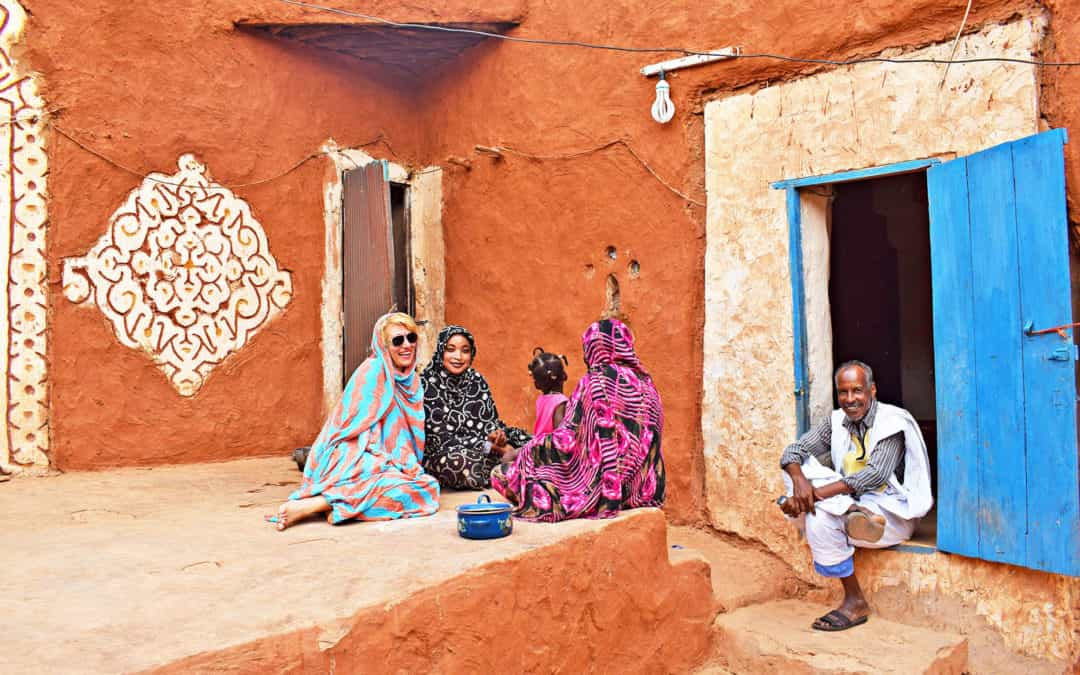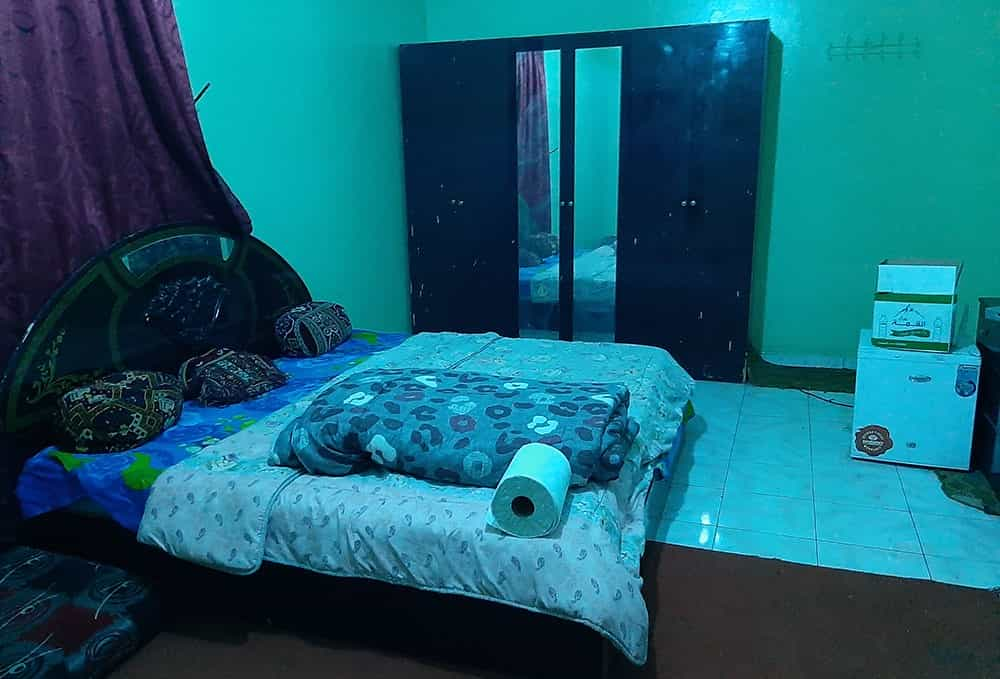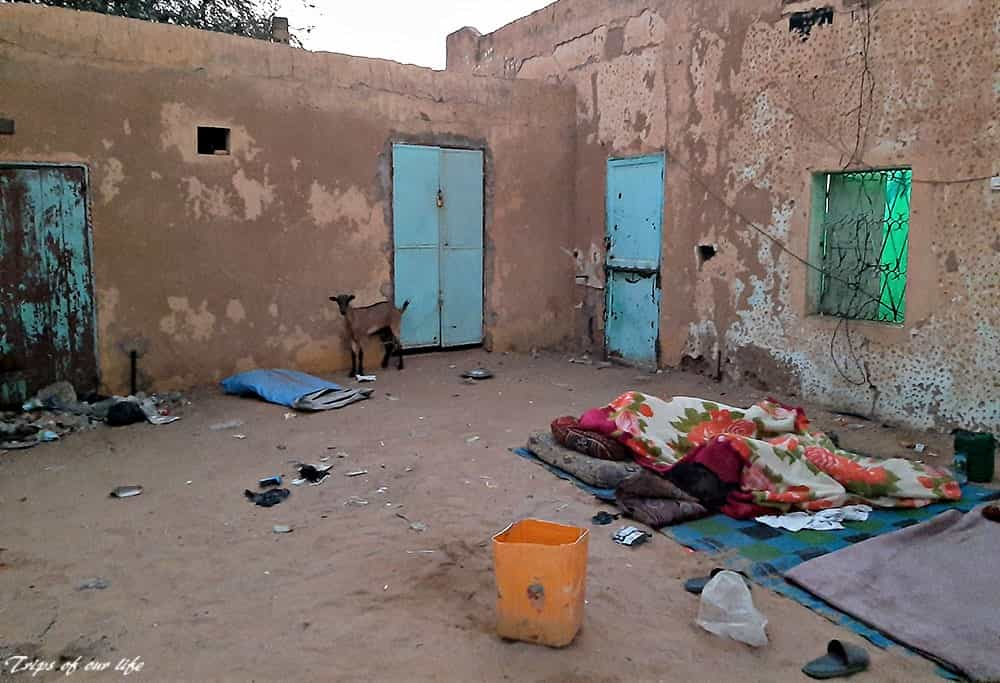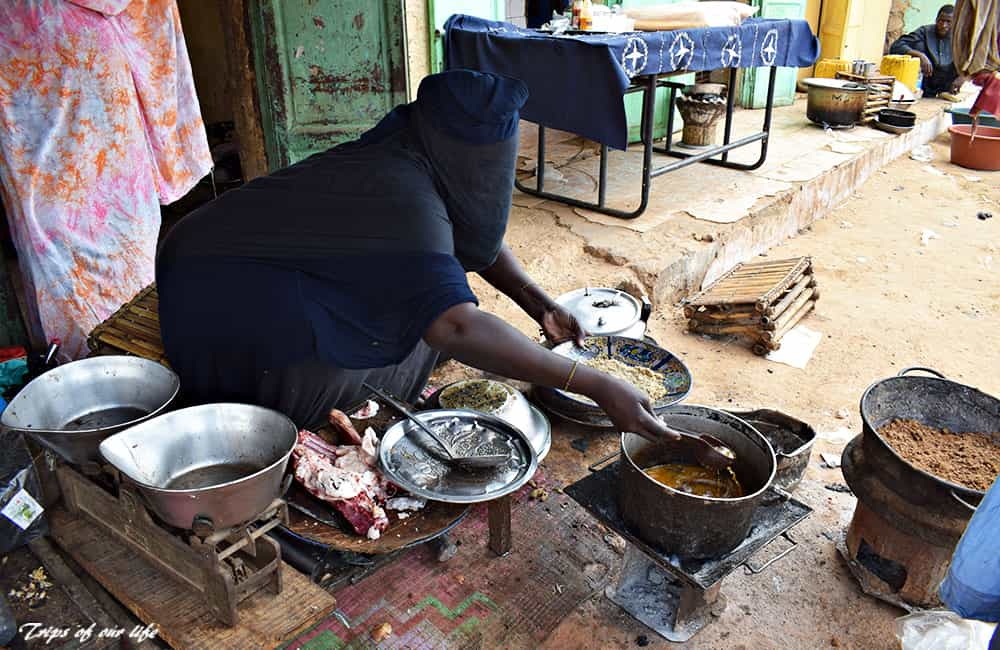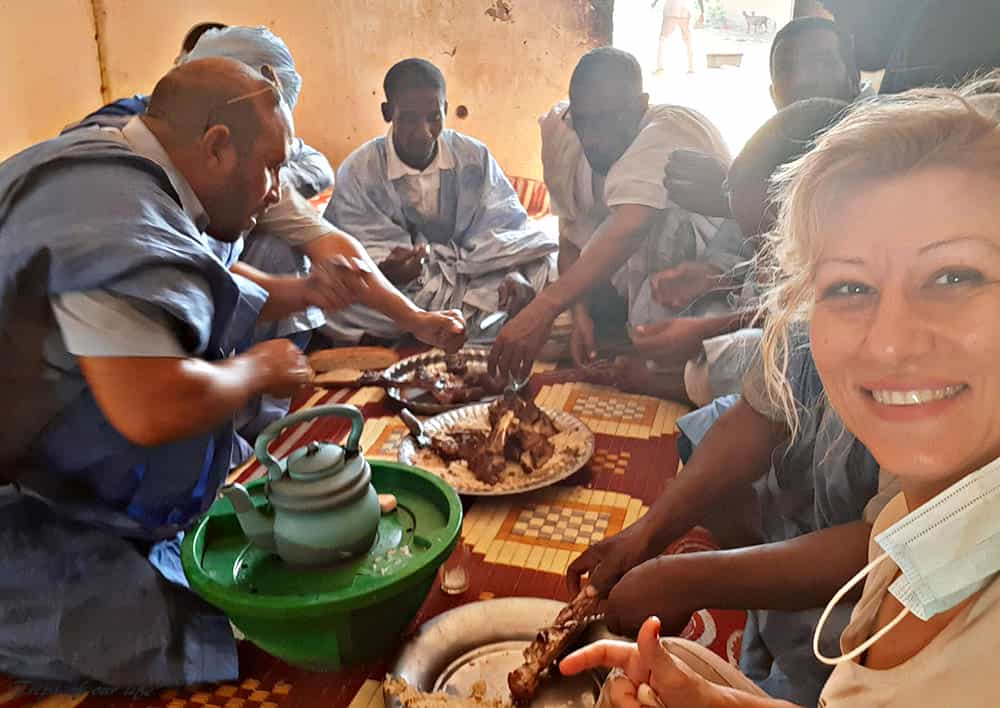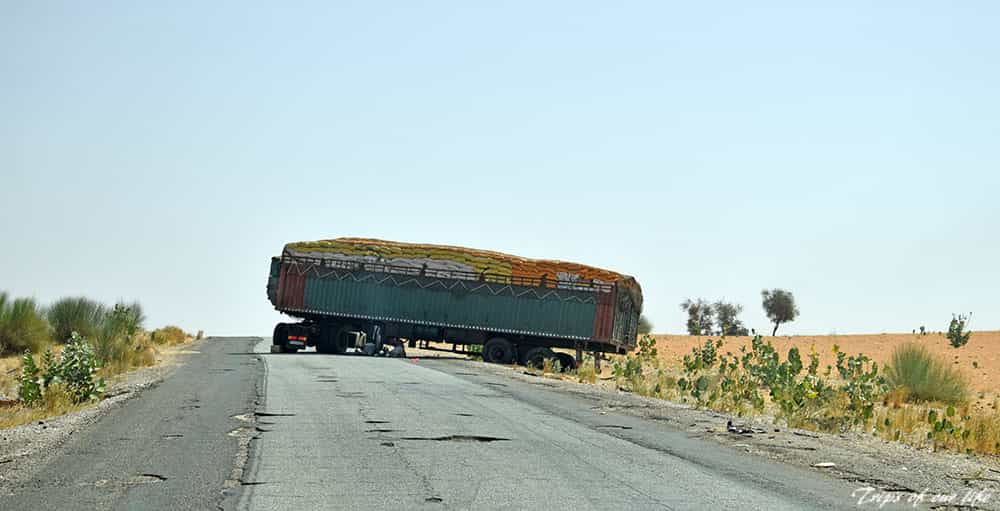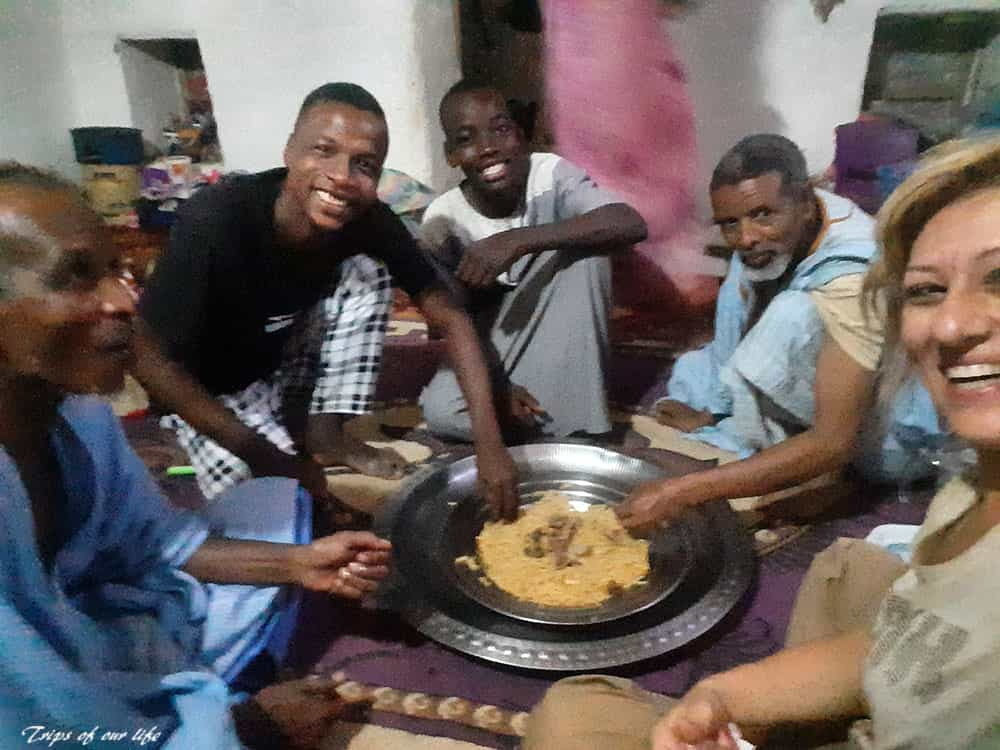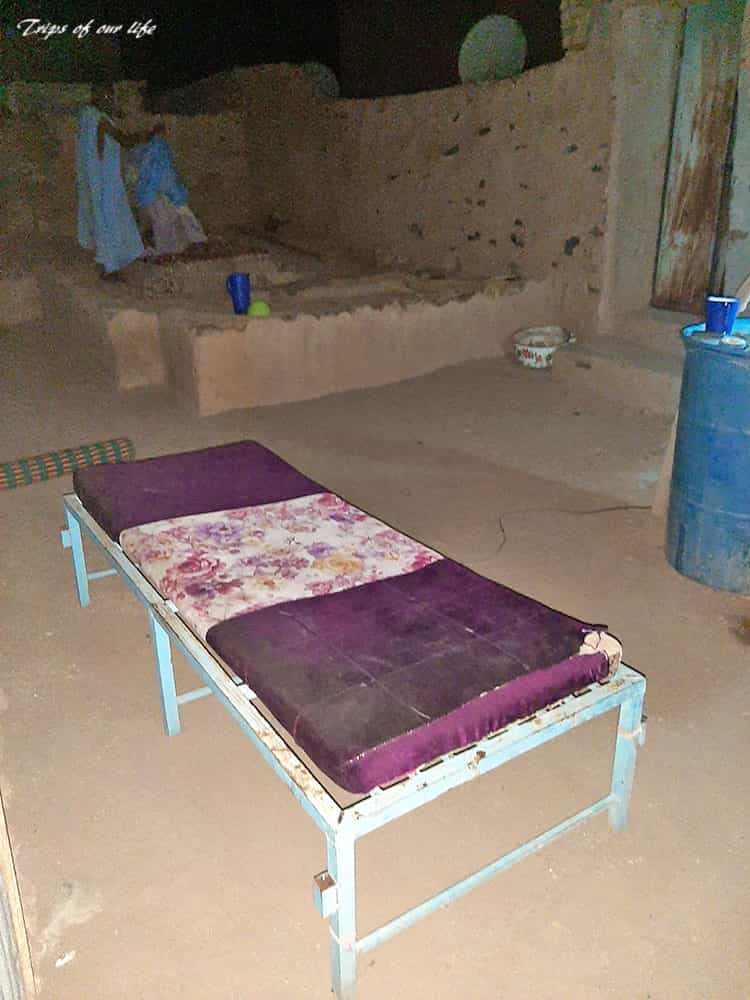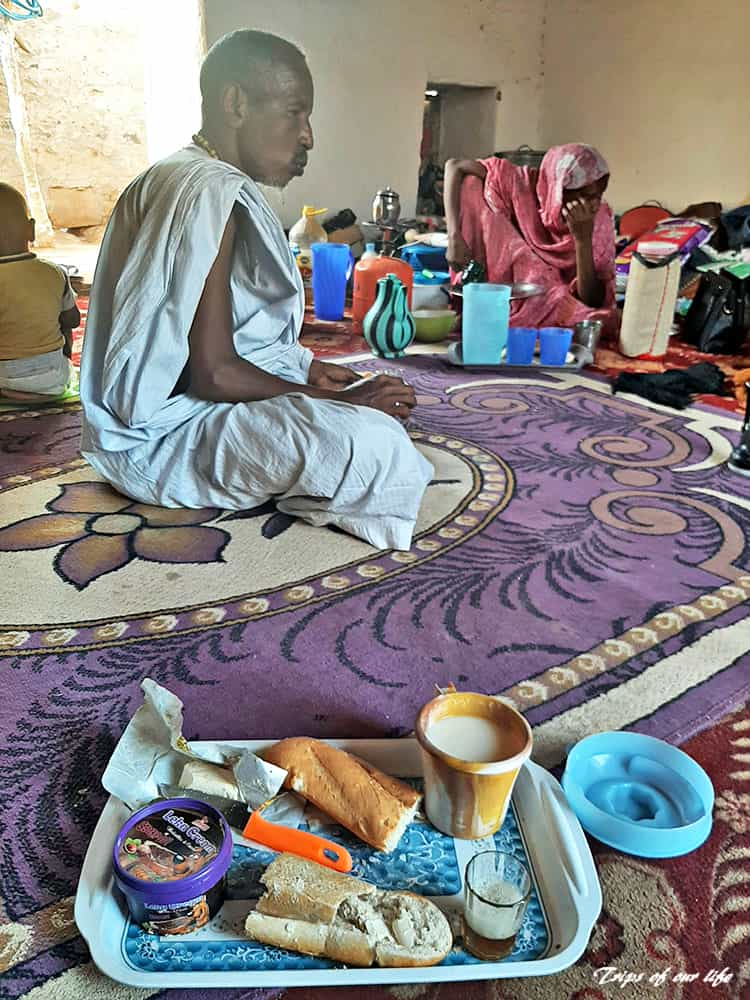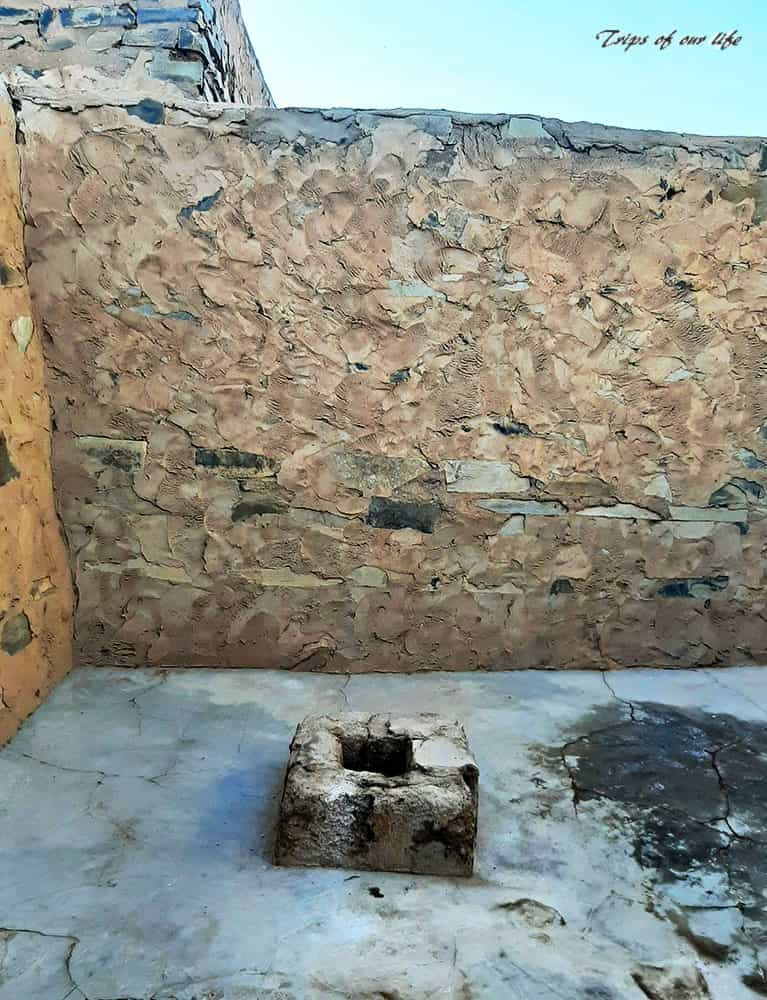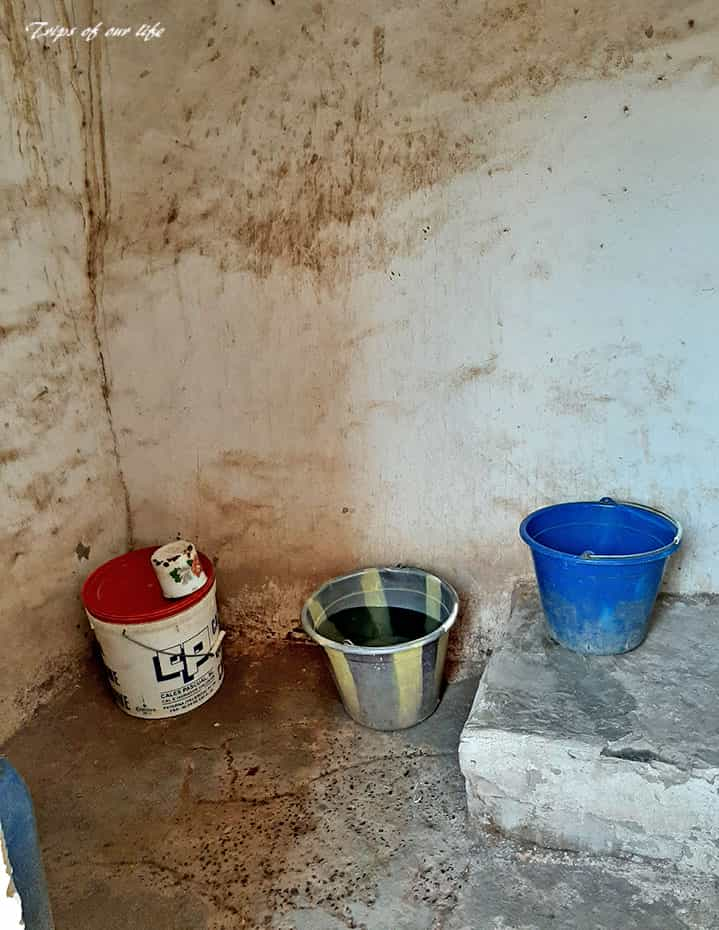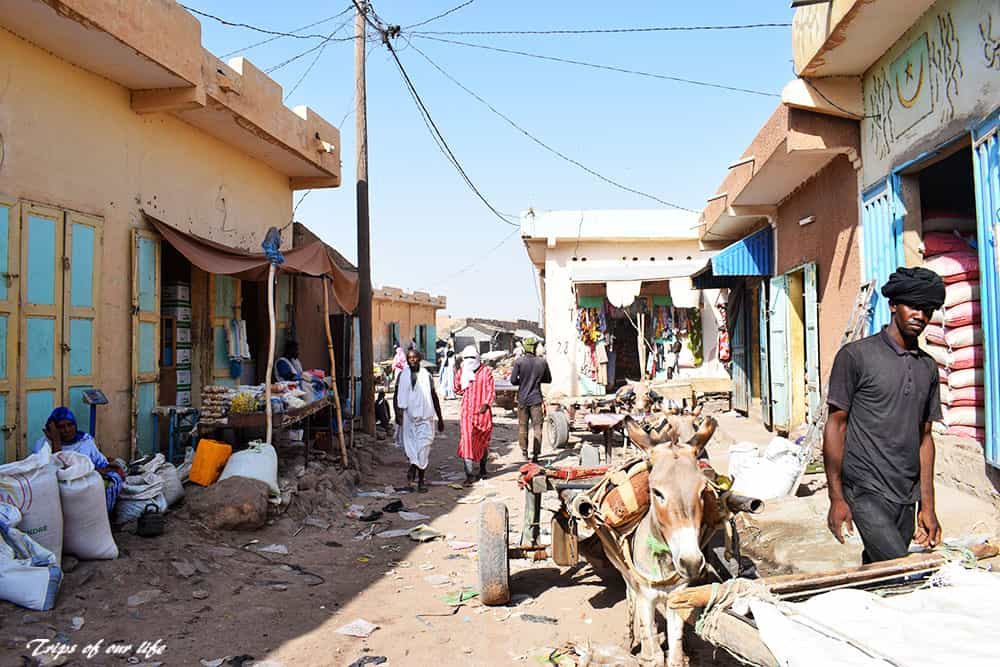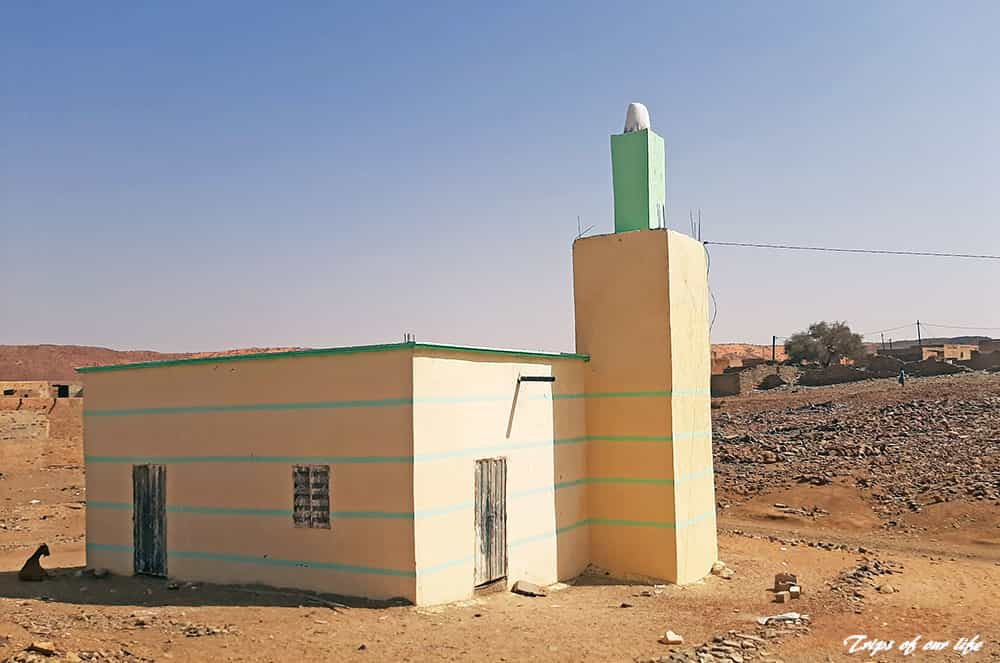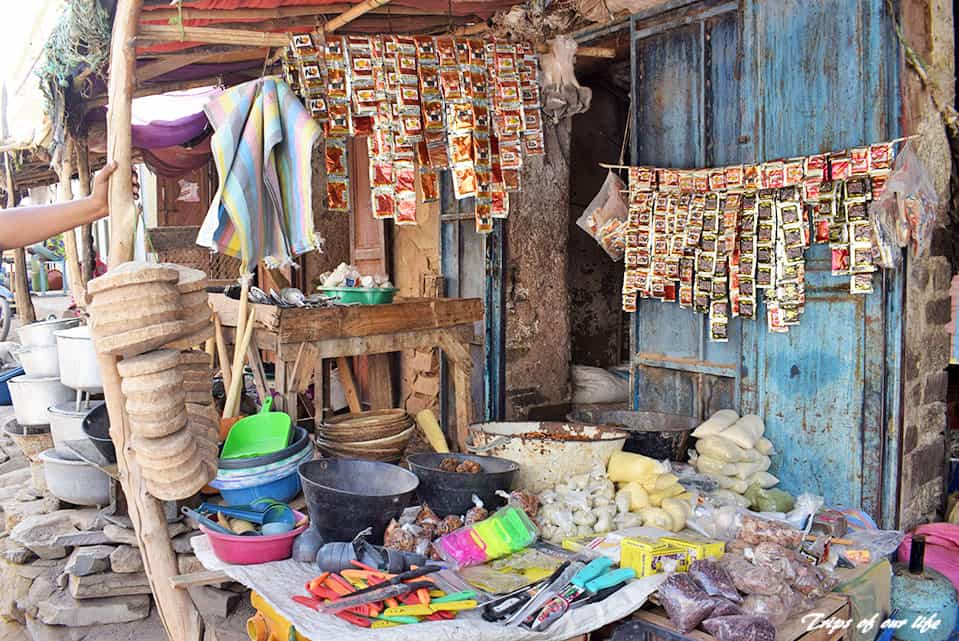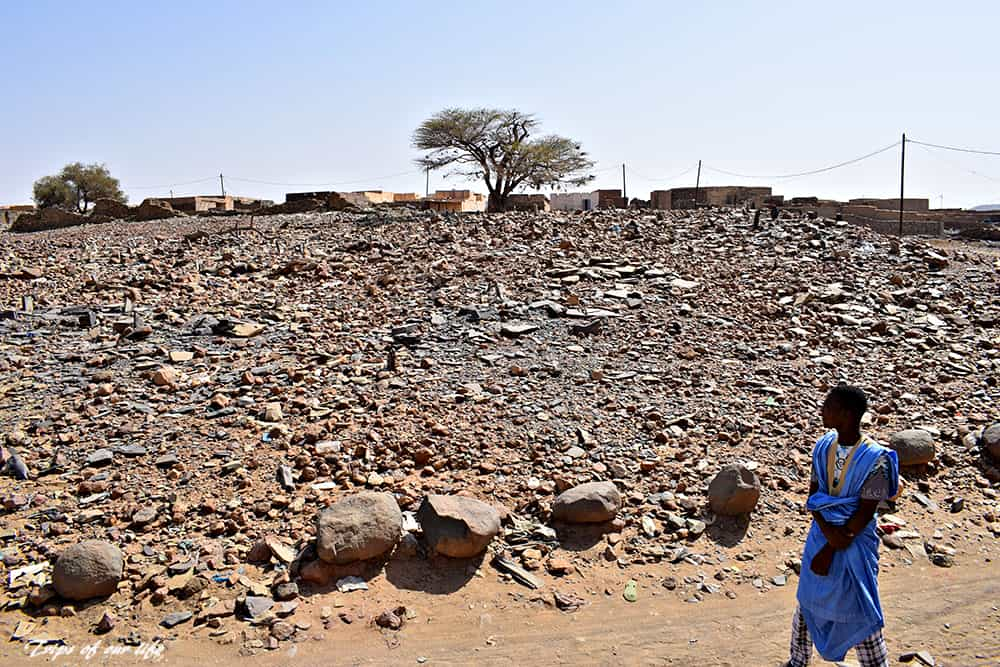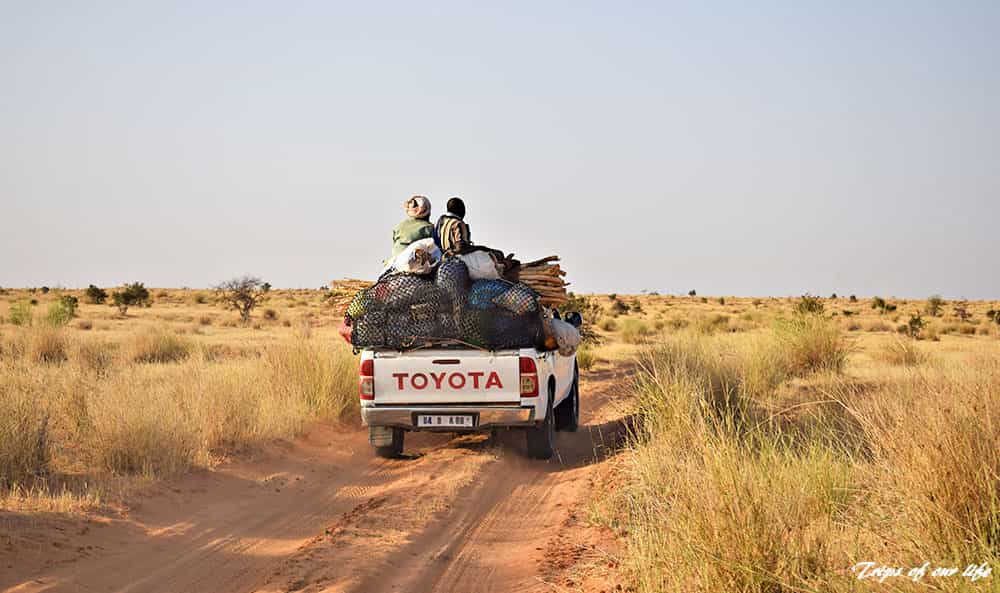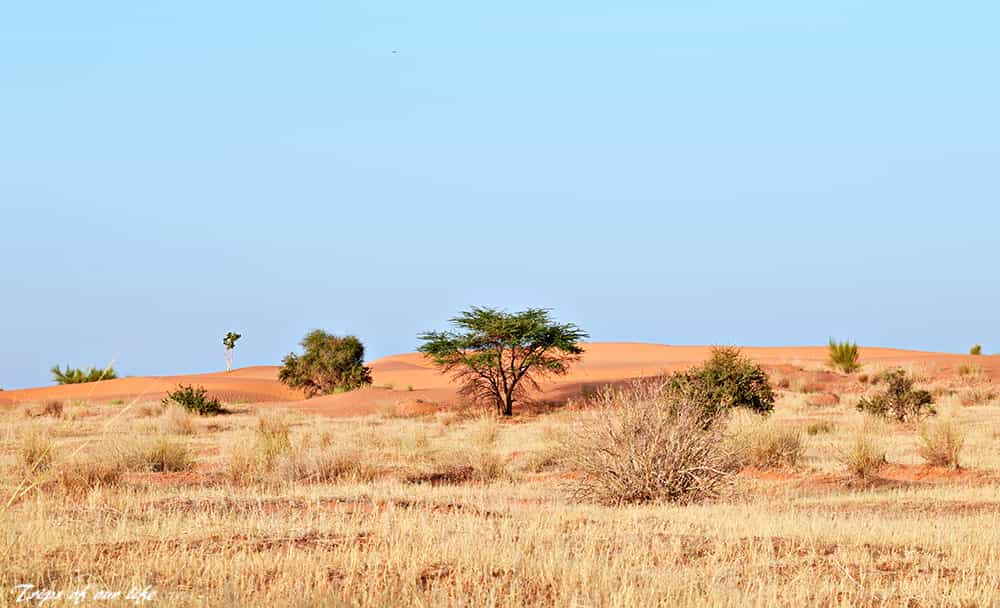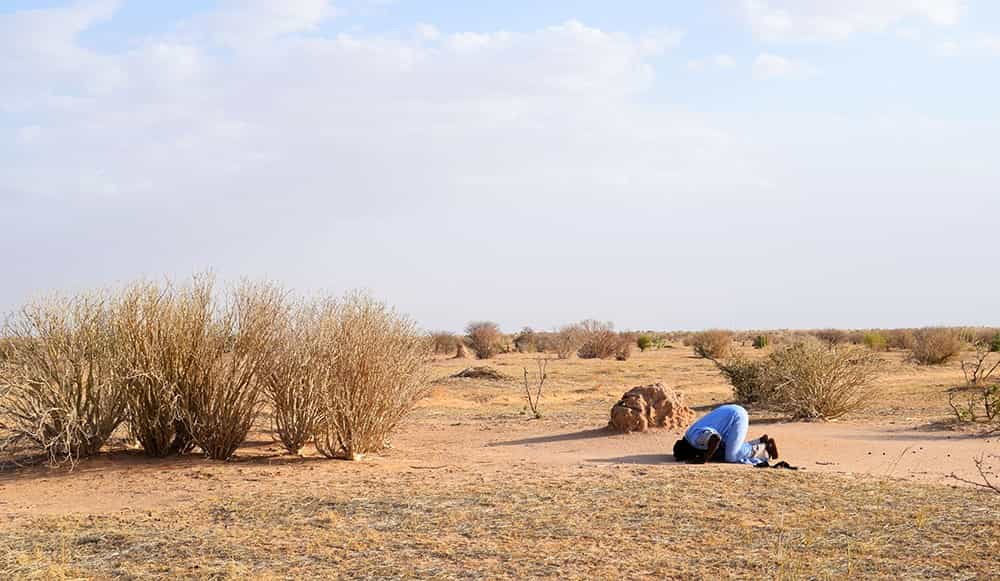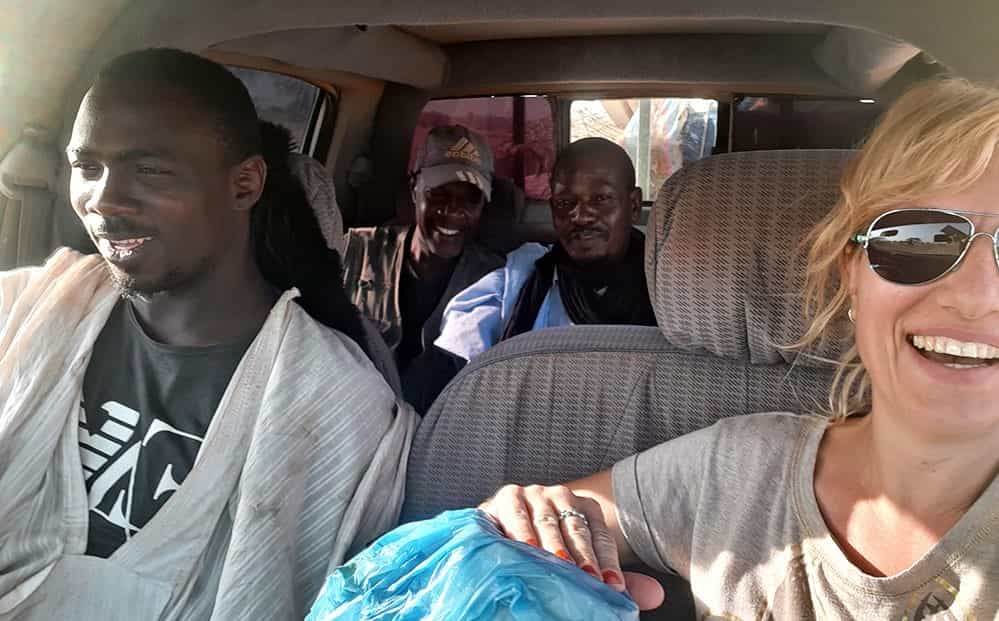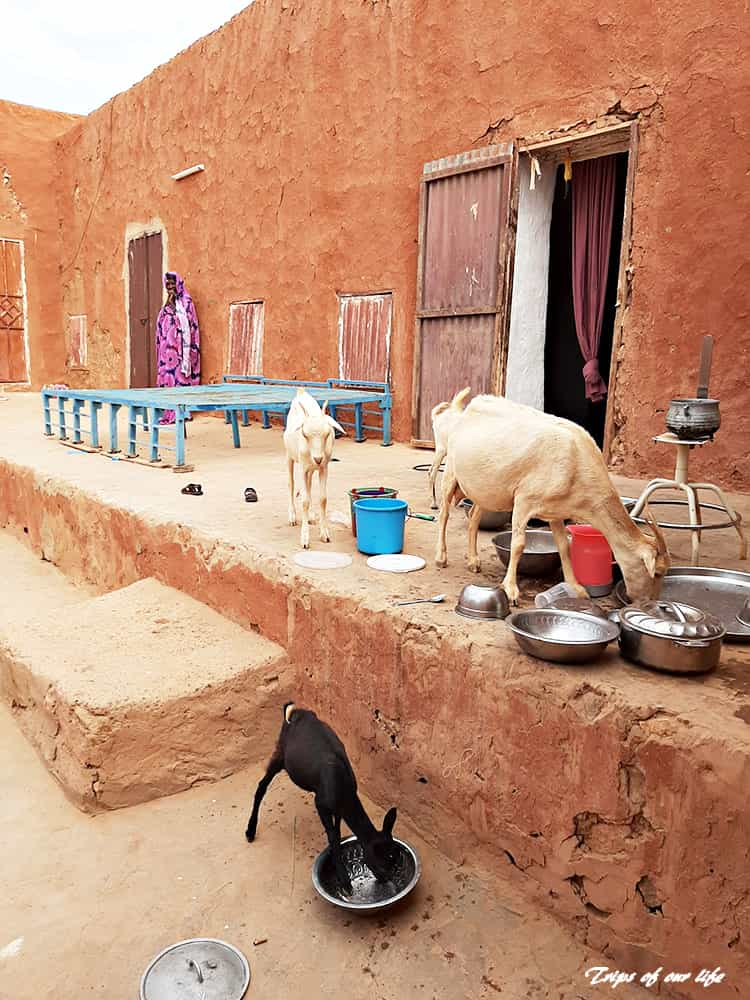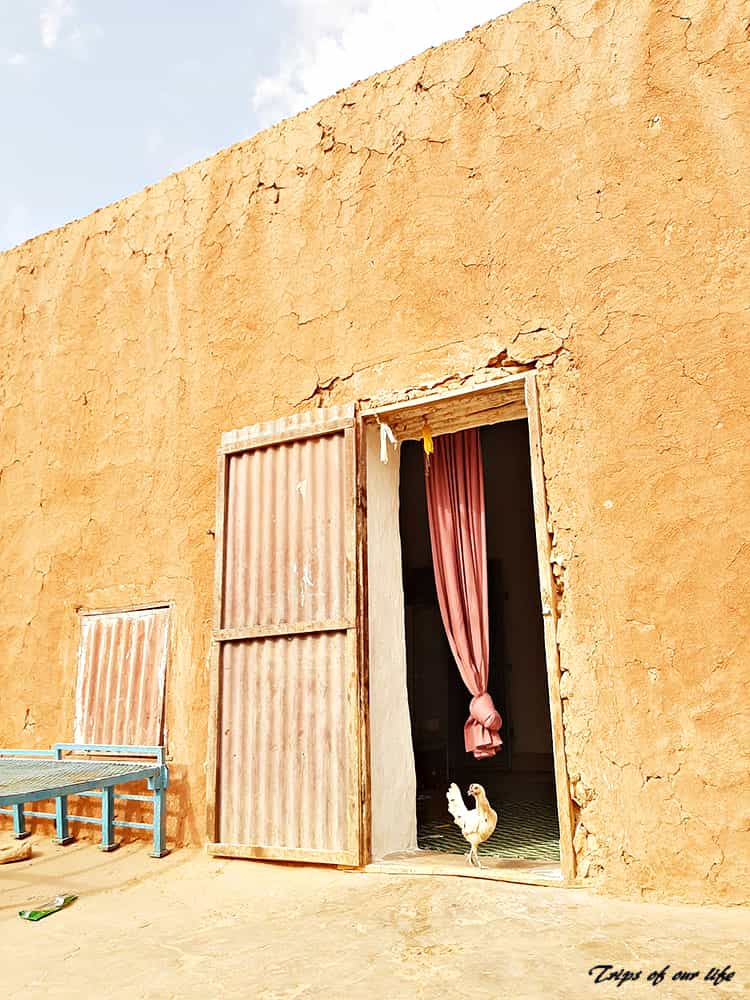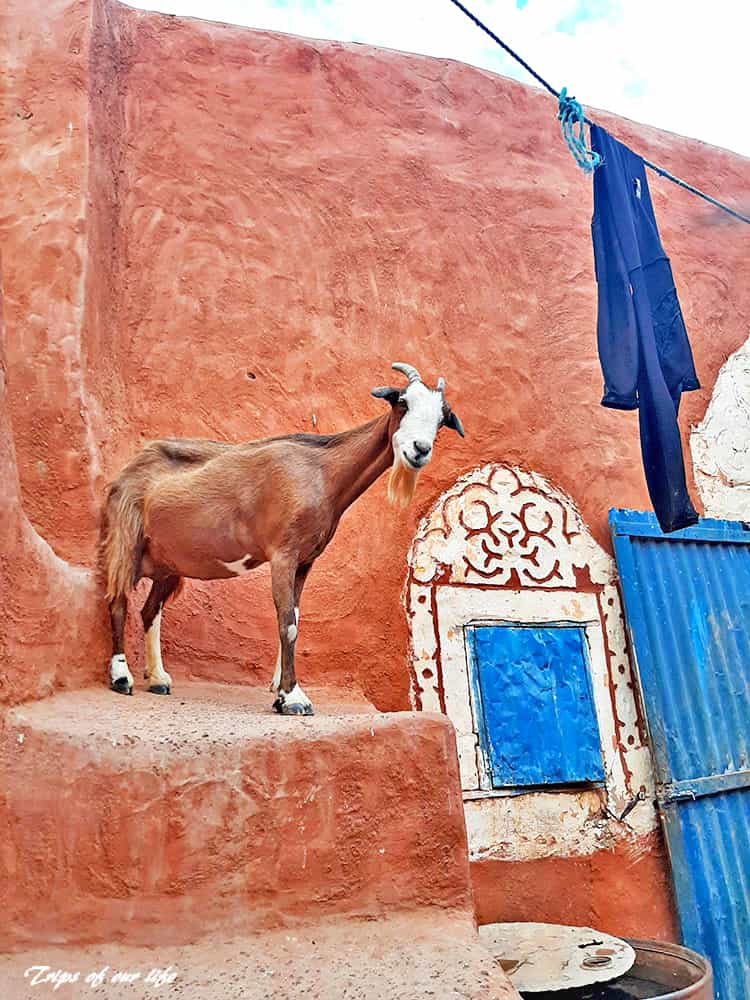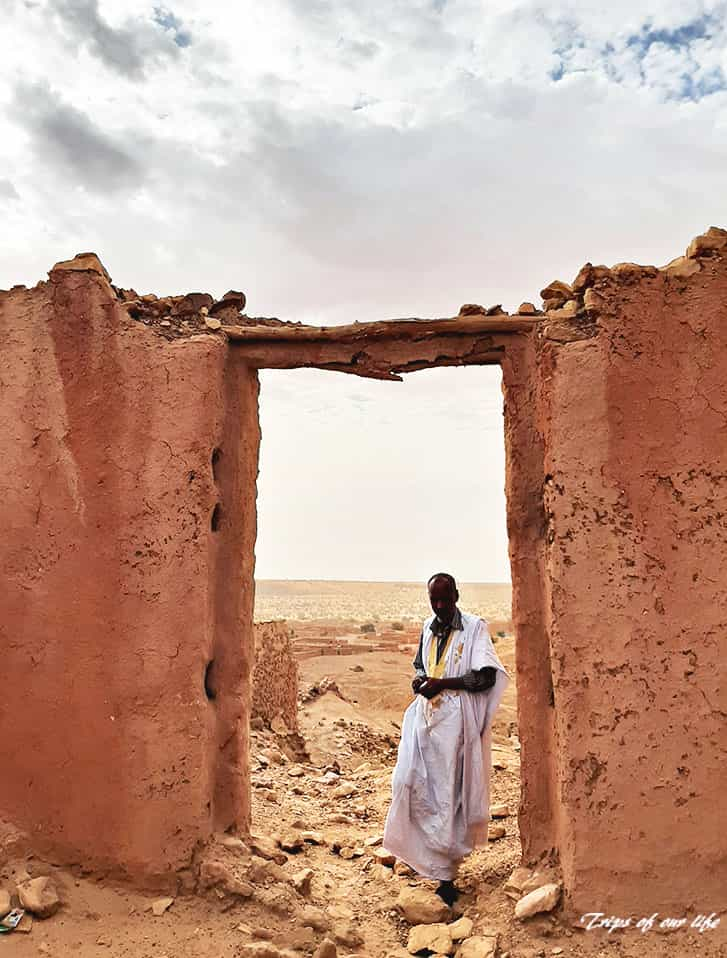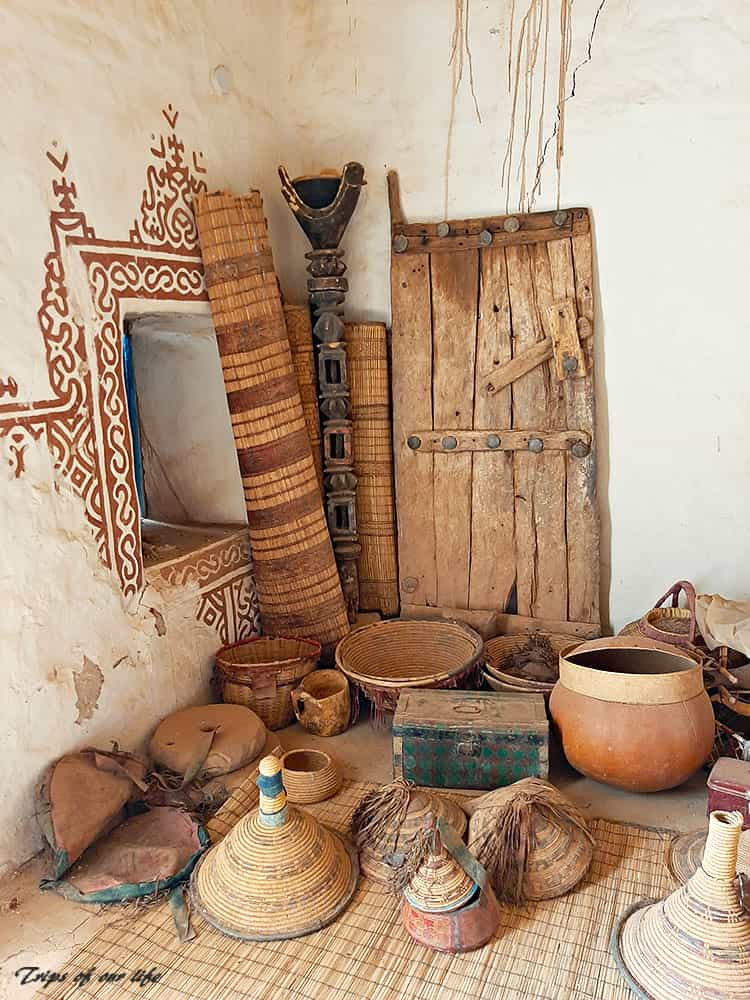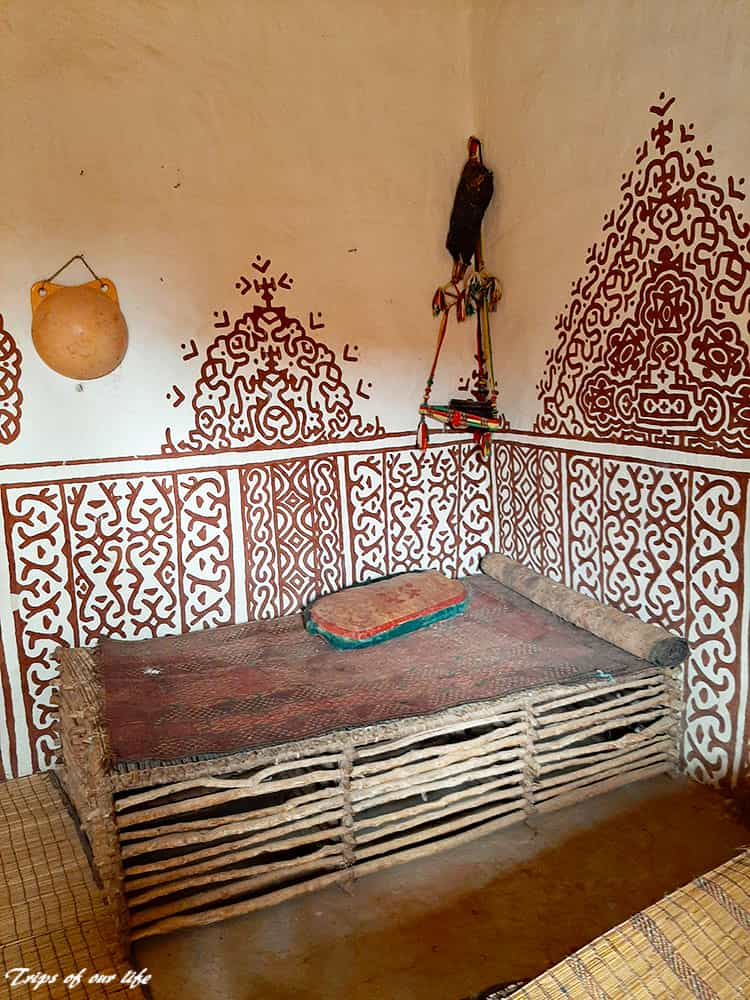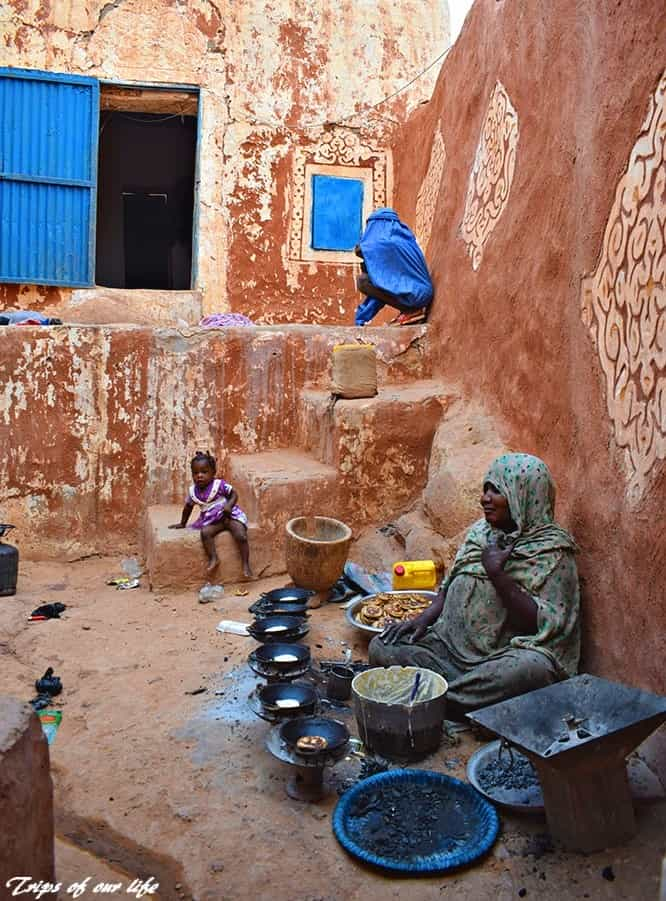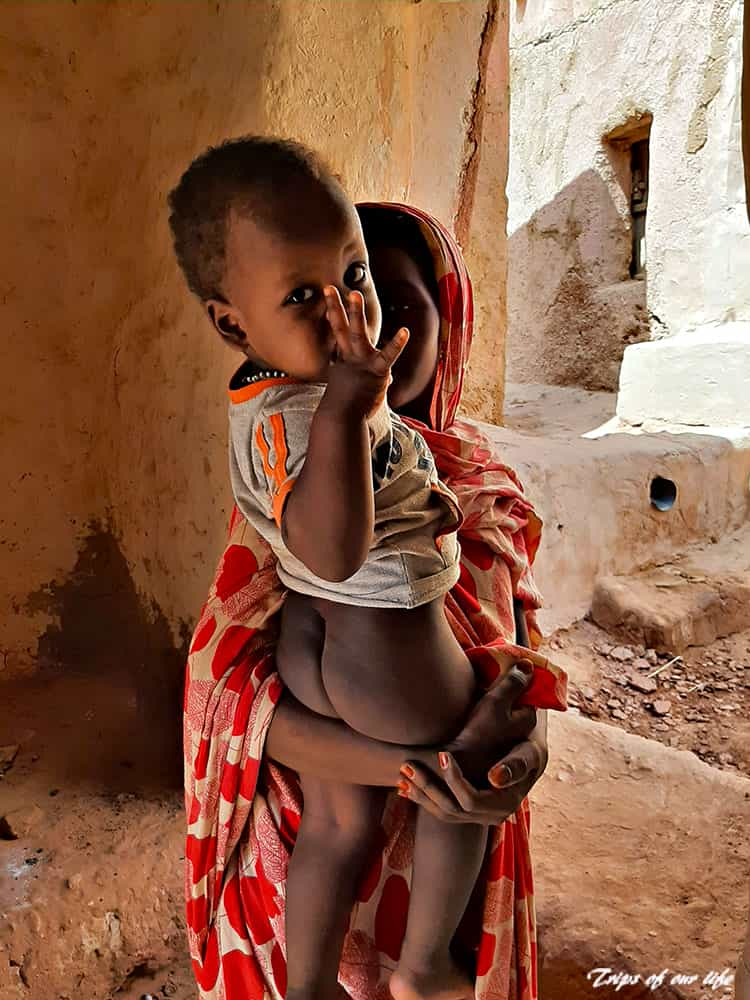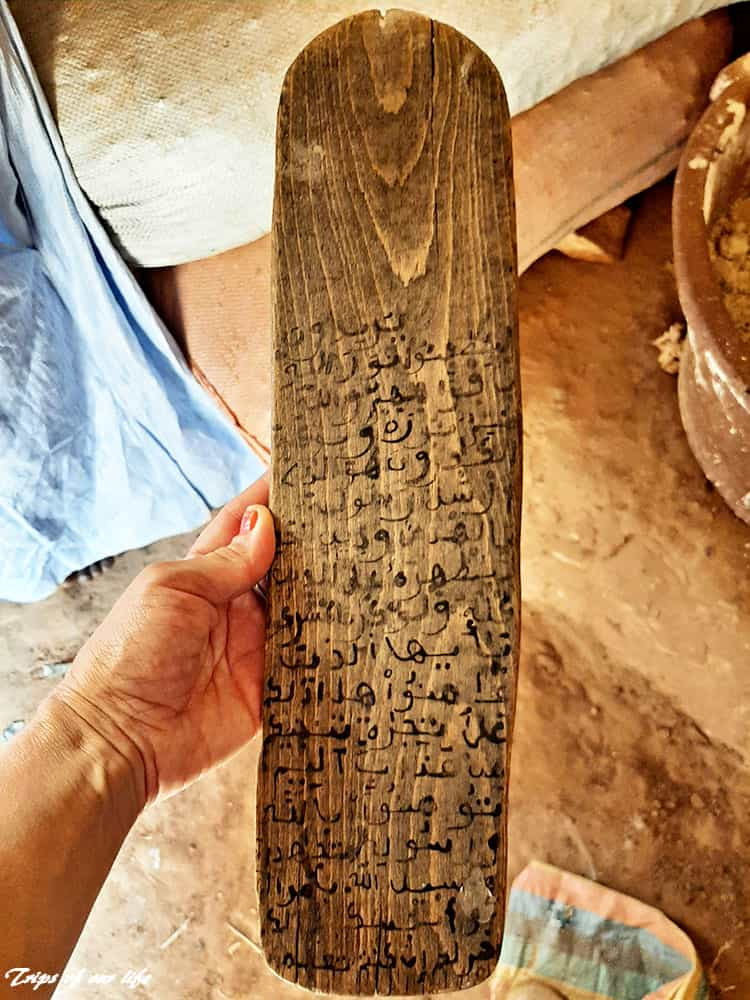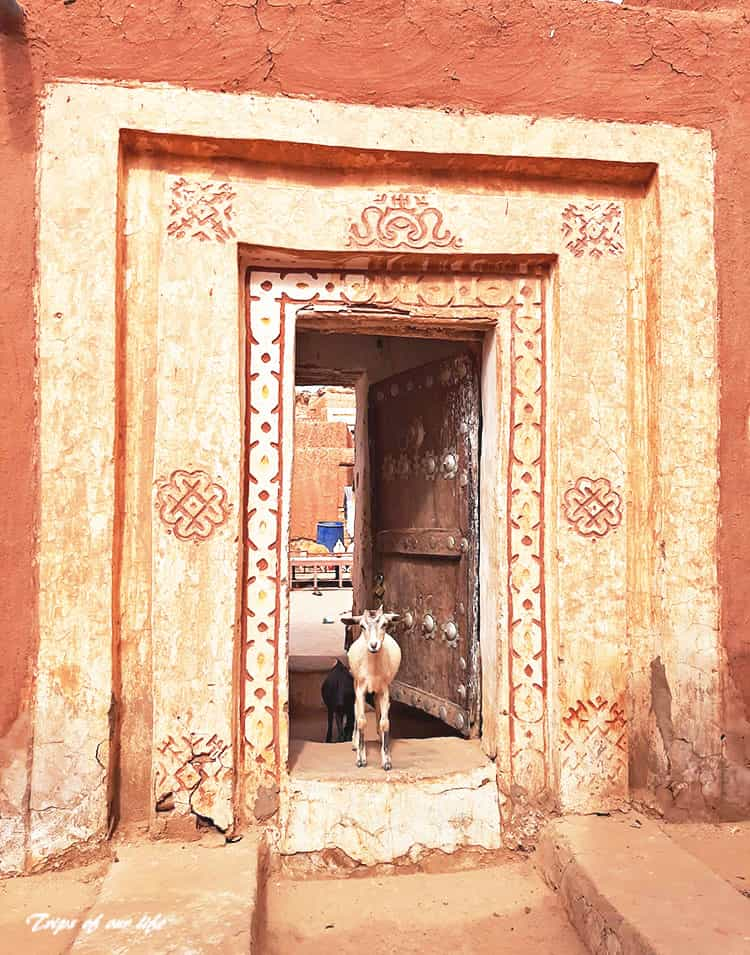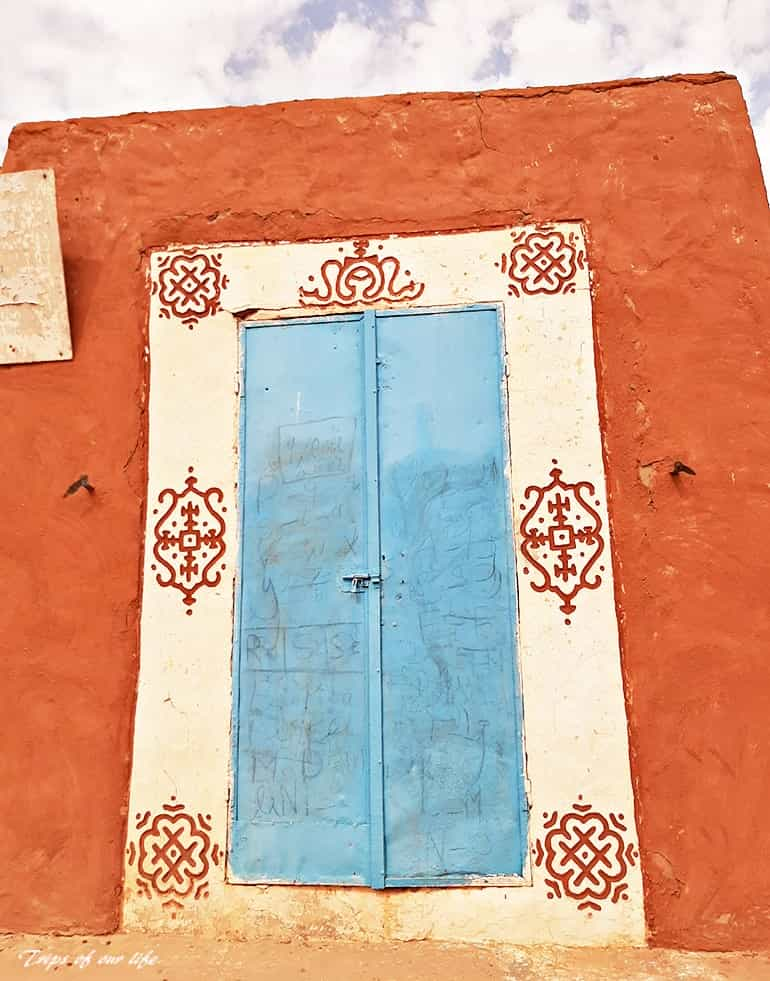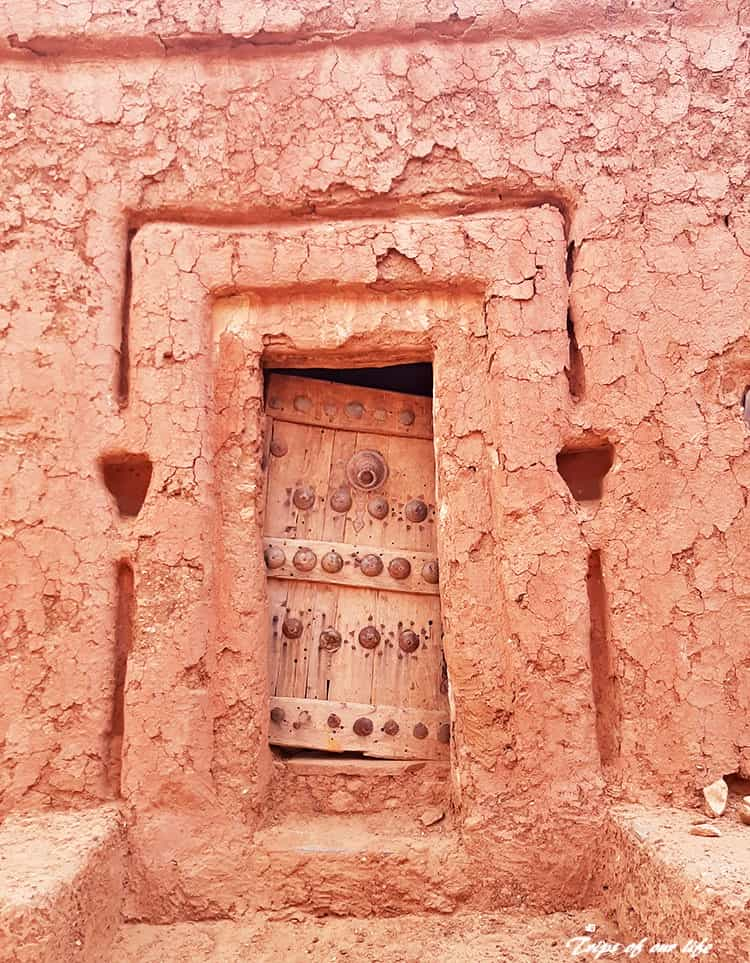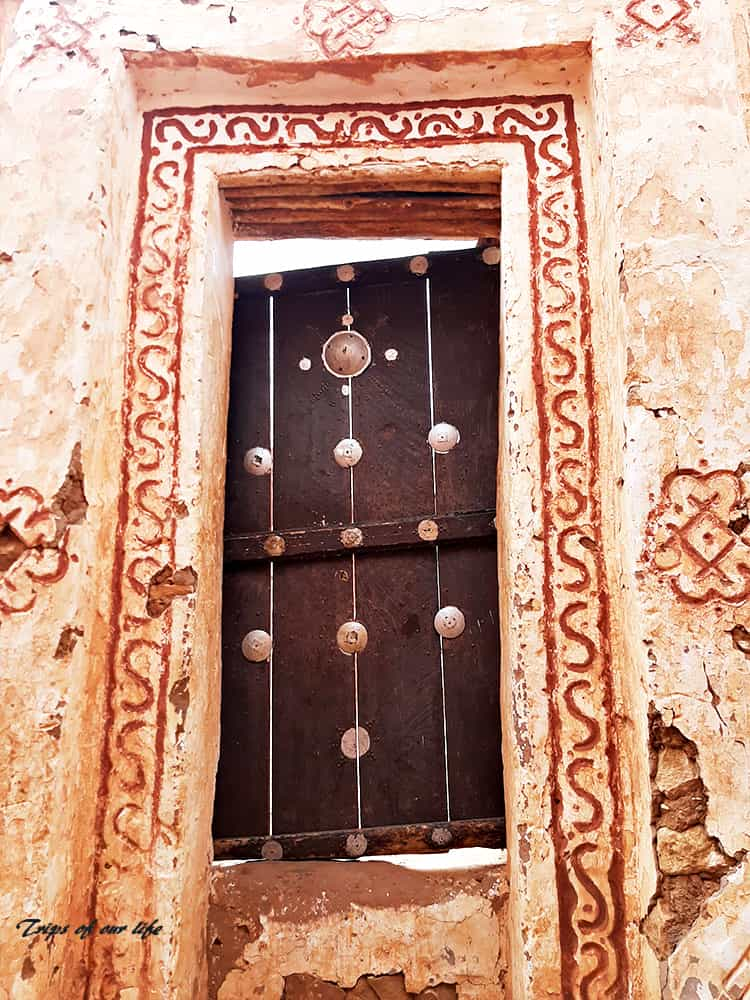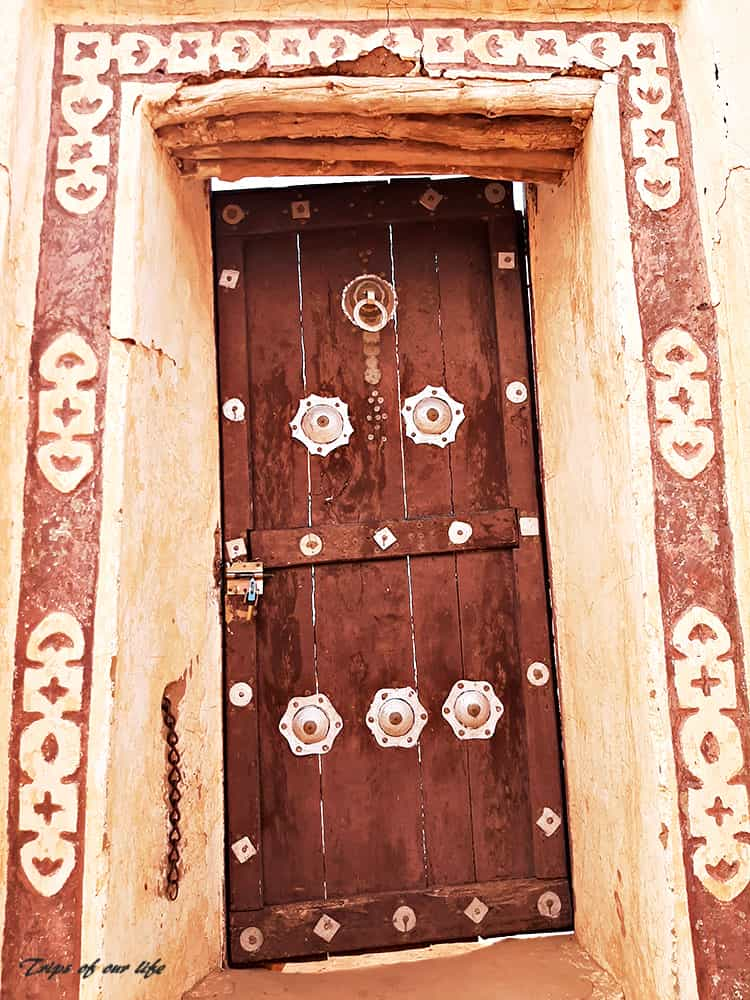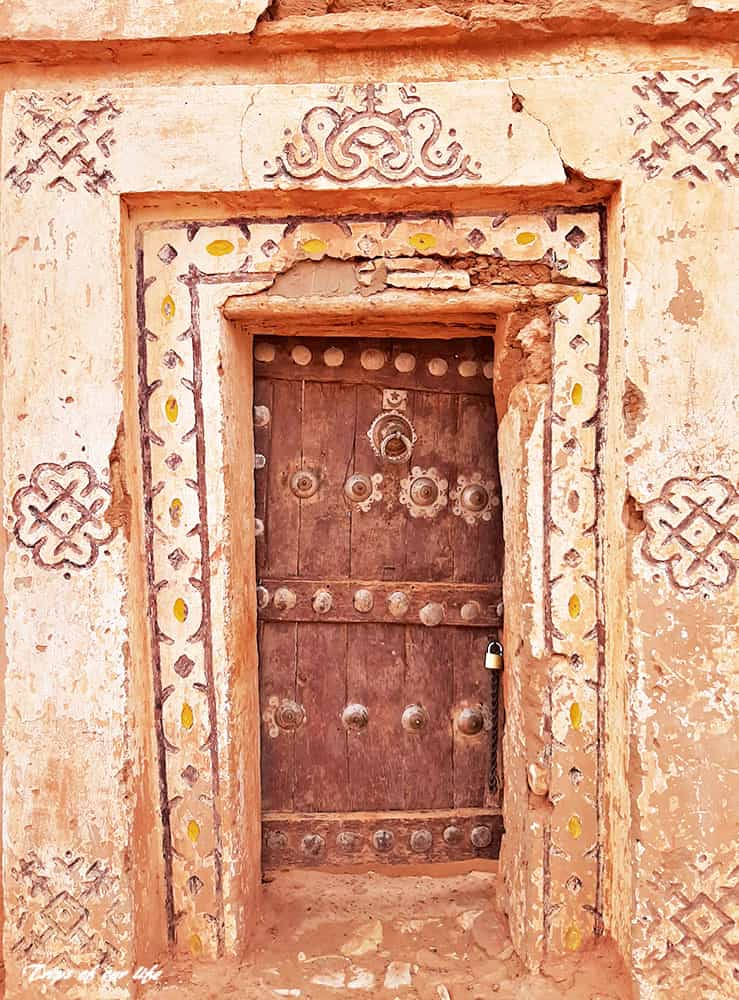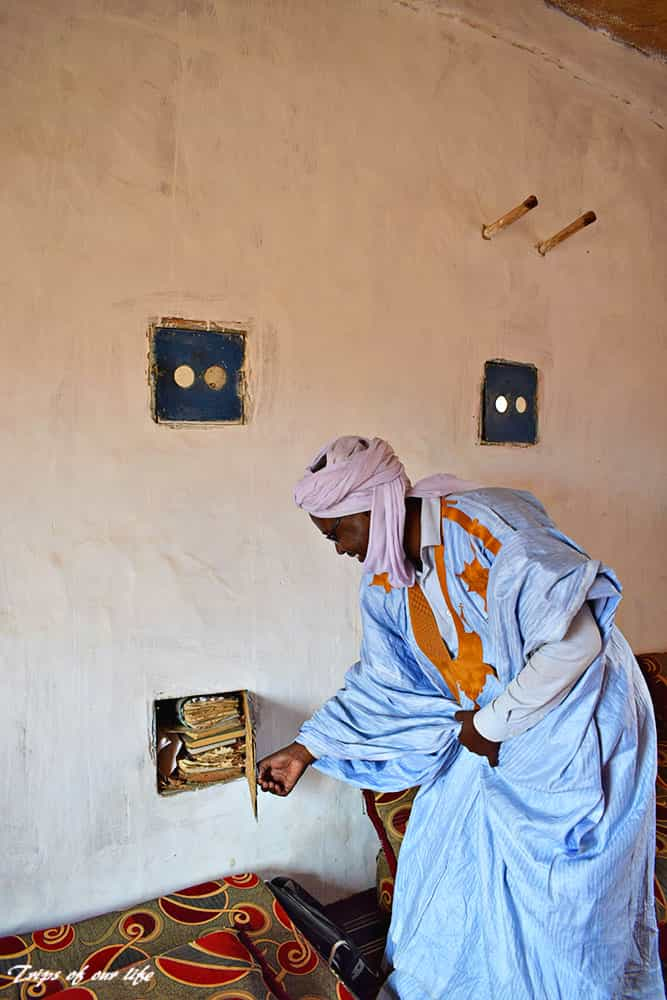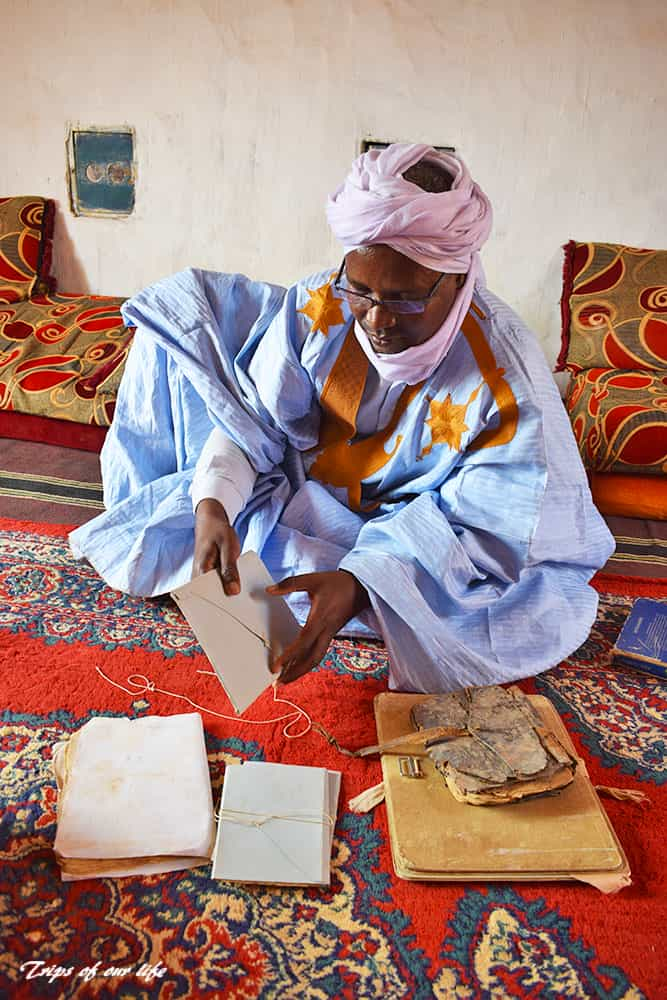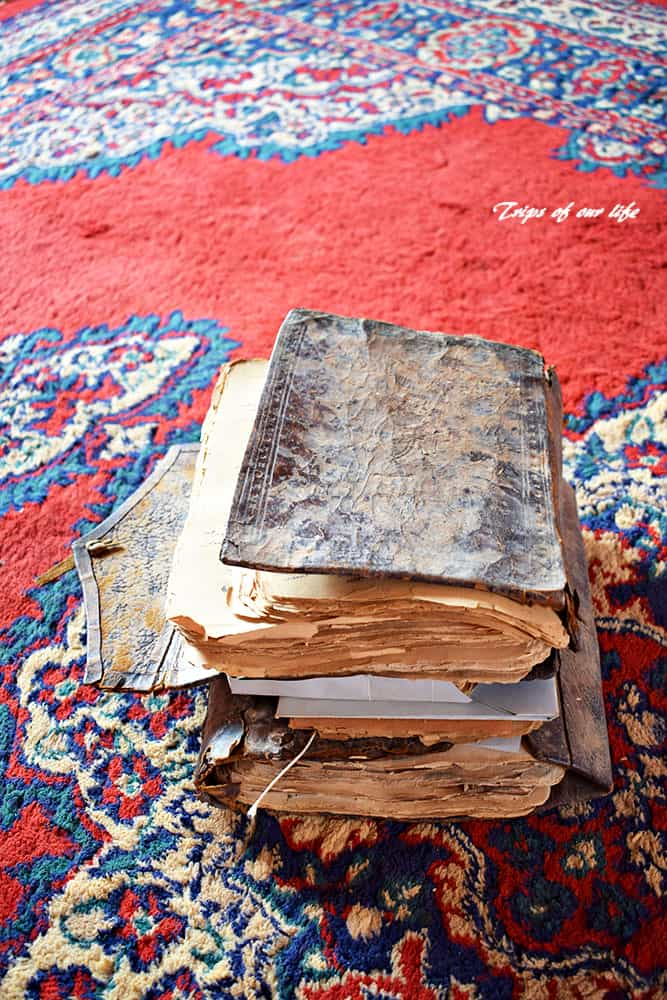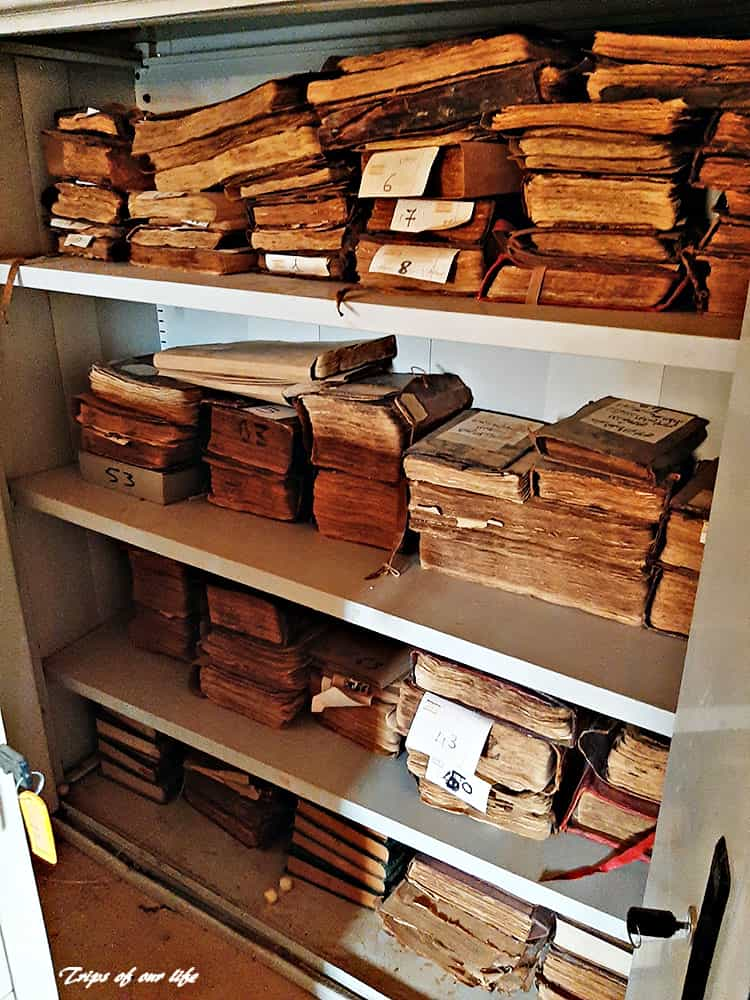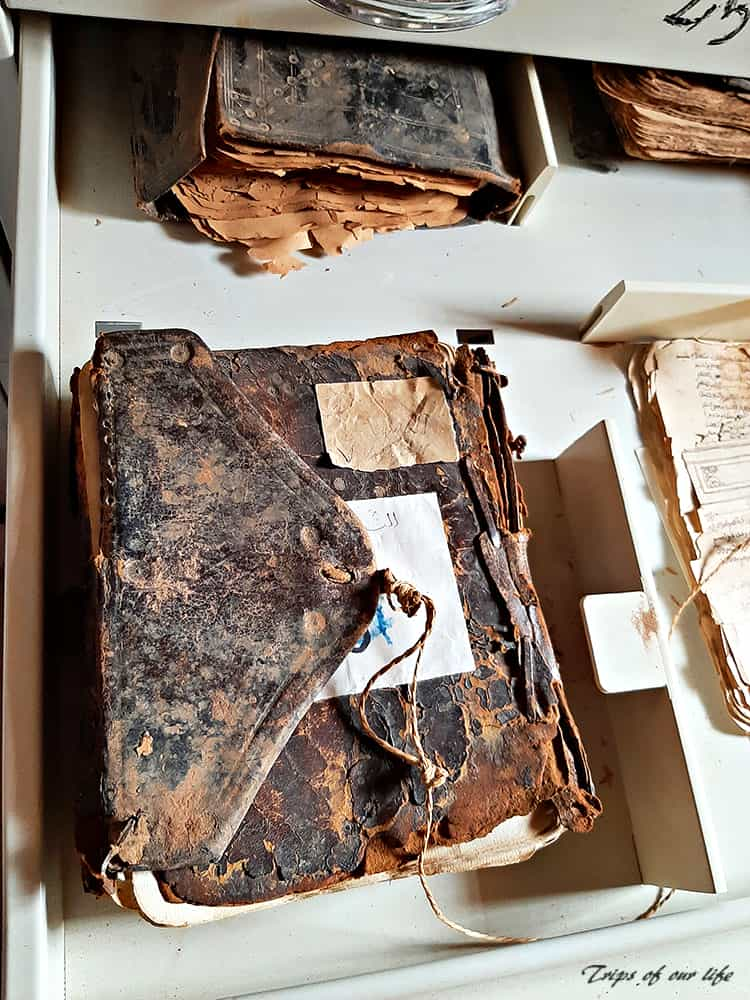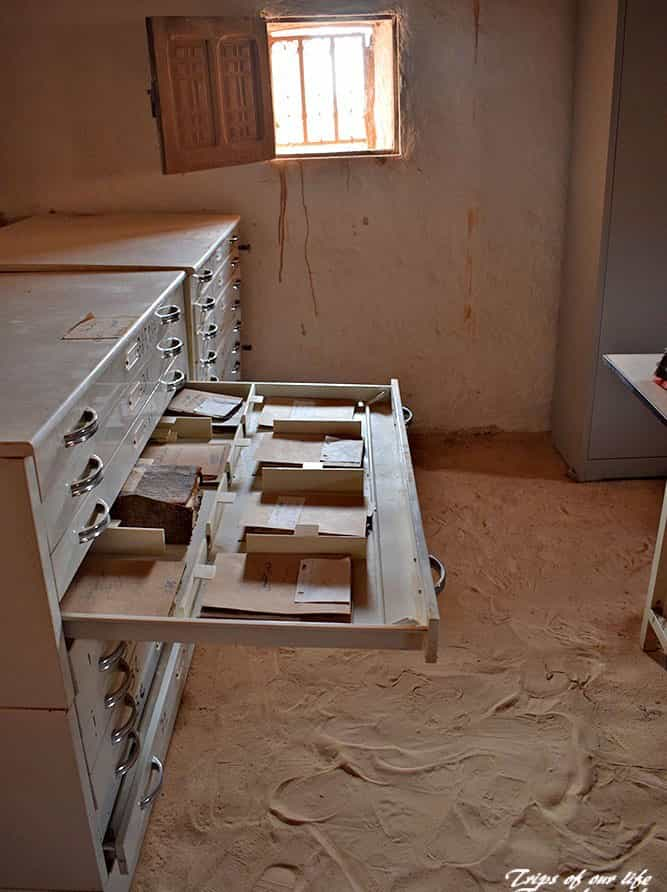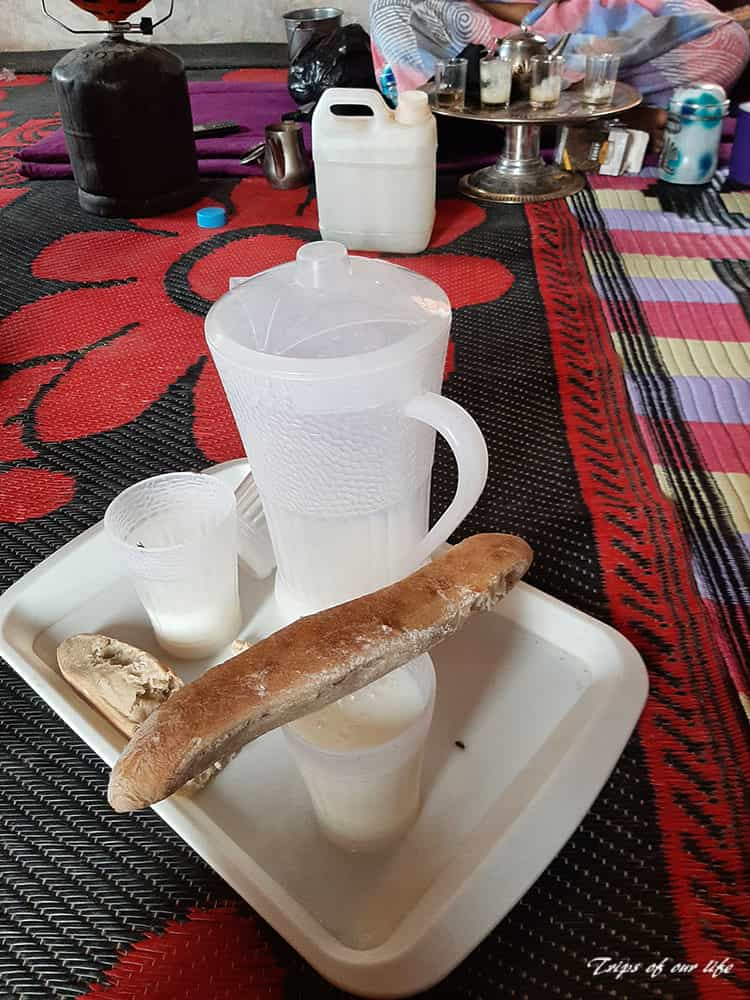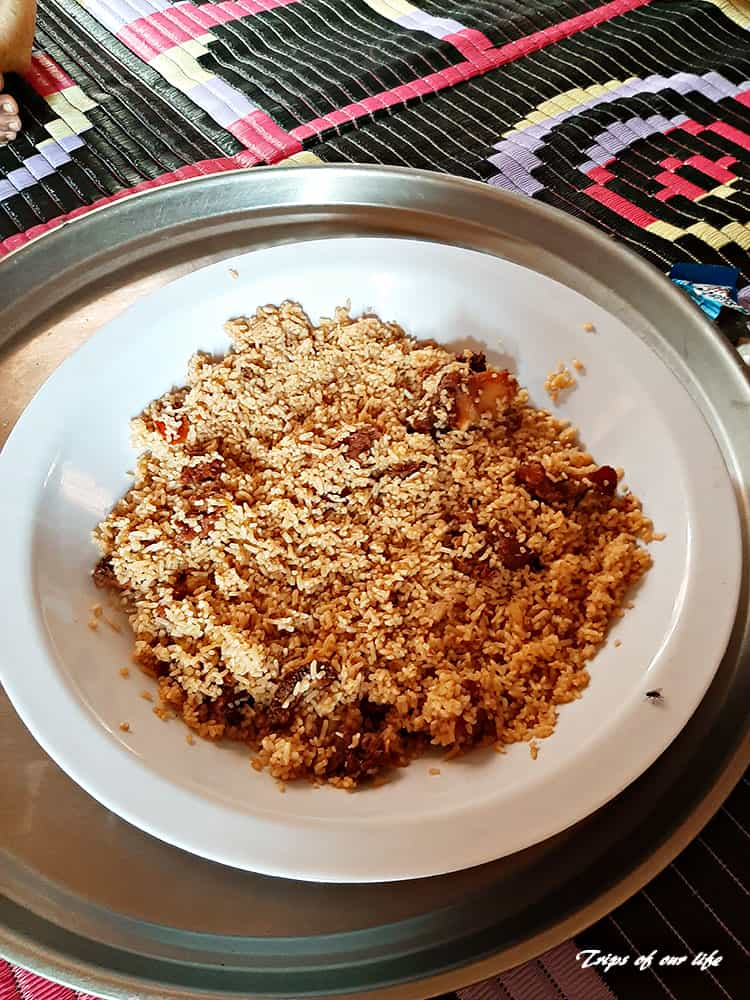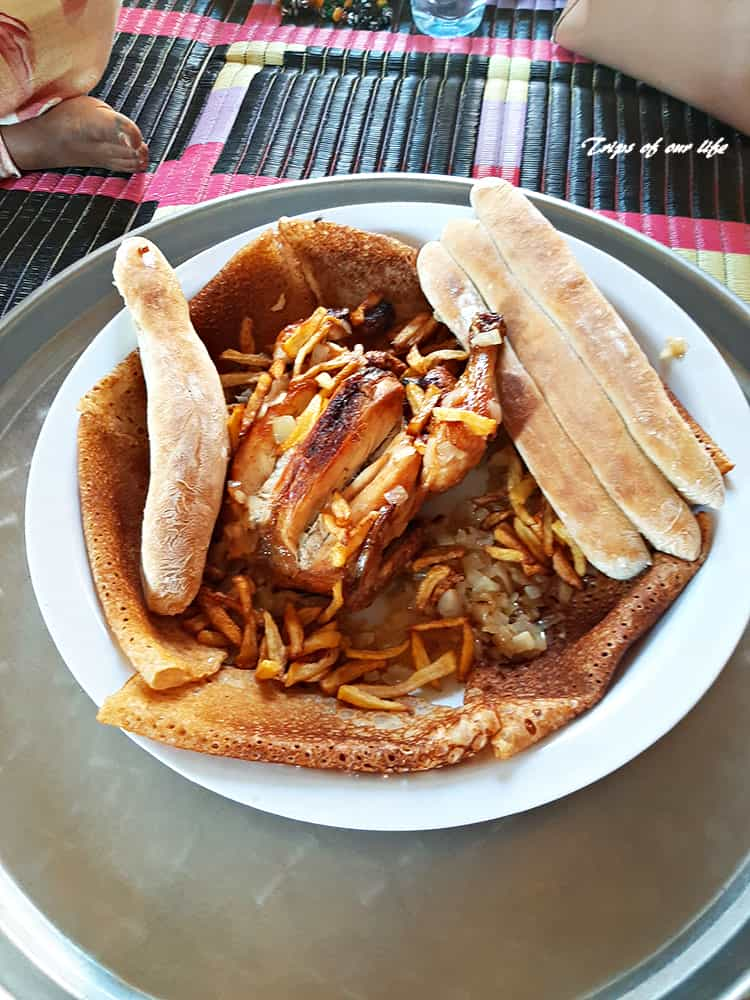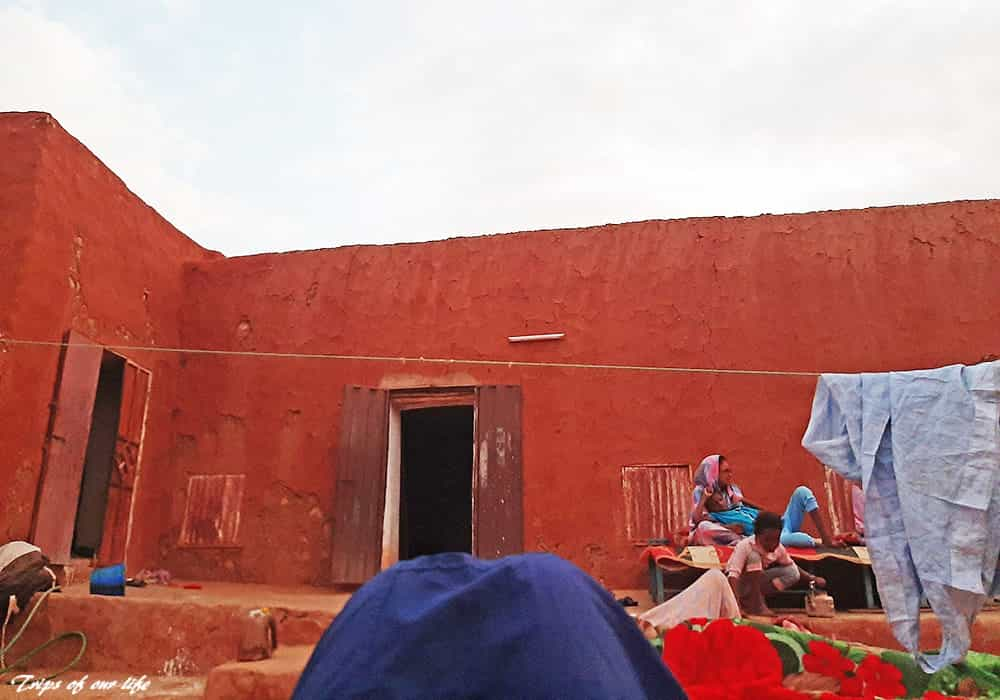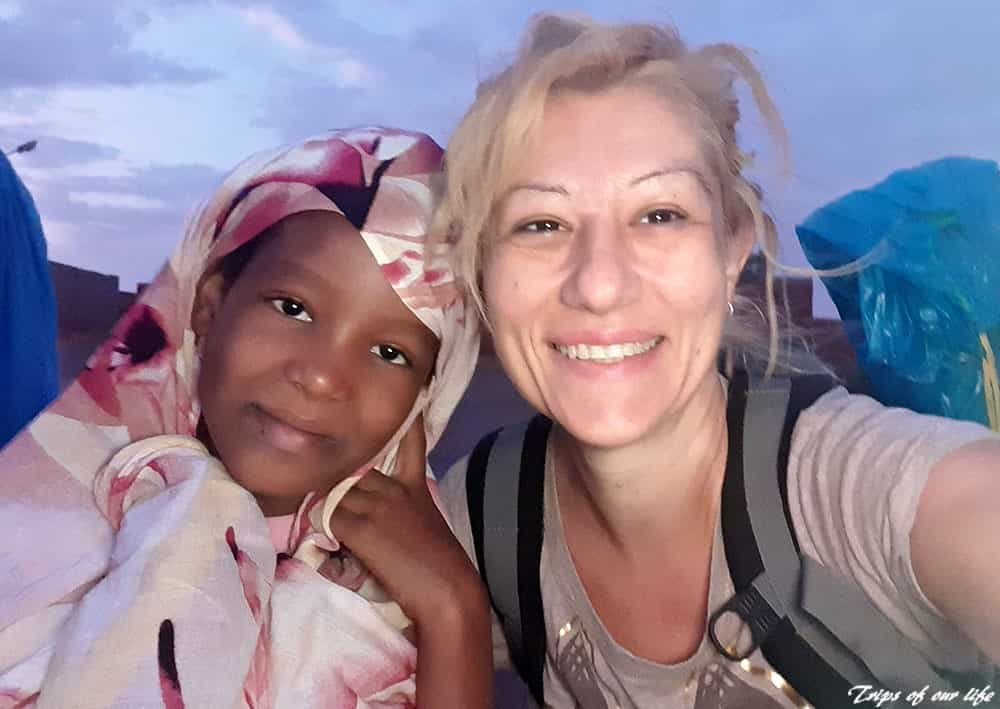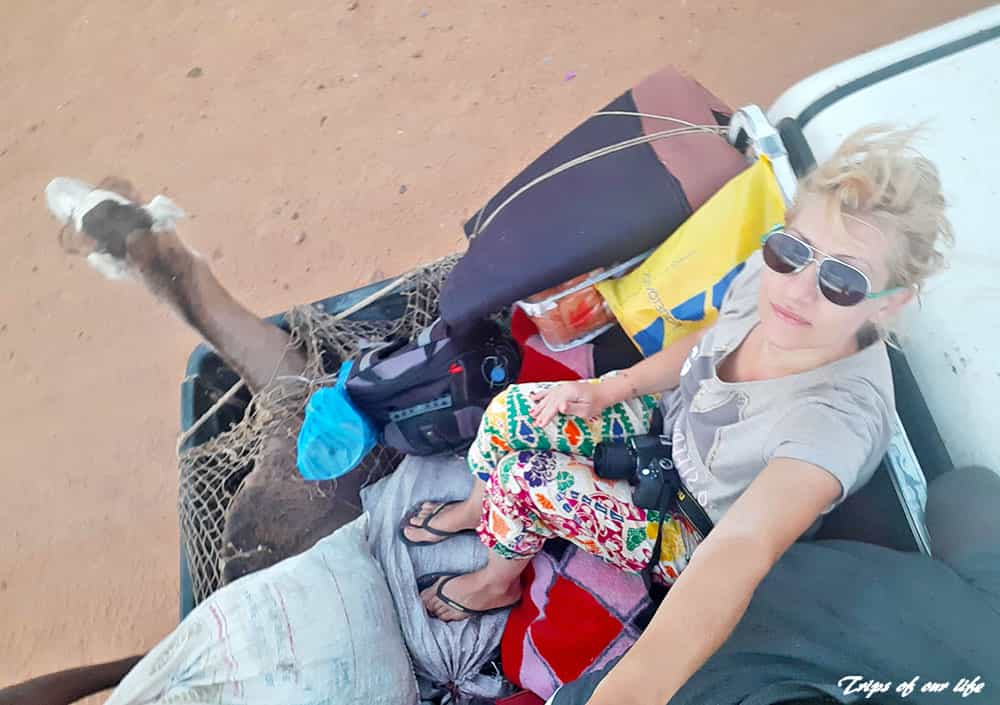One of the main reasons I wanted to visit Mauritania was the ancient city of Oualata.
This legendary caravan city is still unknown and receives very few tourists annually, mainly due to its position on the country’s map. It is completely isolated, located almost 1,200 km. far from the capital Nouakchott, near the south-eastern border with Mali, while the closest town Nema is placed at 100 km. Access is particularly difficult and very time-consuming, especially if you only use public transport, as I did.
The tip of the iceberg: the area is still considered dangerous, as until a few years ago the entire eastern side of the country was off-limits due to Al-Qaeda, jihadists and various extremist groups of the central Africa.
So, why should someone go there?
Because, it is totally worth it!!!
I couldn’t find any recent information online and I didn’t know anyone visiting the south, except for a Canadian girl on instagram, who had traveled solo by bus too, some years ago ending up in Mali.
That was basically my initial plan as well:
first to visit the rest of the country, cross the Sahara desert riding the legendary iron-ore train, then head down to Oualata, from there by bus to Mali and fly back home from Dakar, Senegal.
What an epic road trip!
My wings were initially clipped by the Greek Embassy in Dakar, as the staff could not justify my trip to Mali, but I didn’t take it that seriously. I am well aware that the Embassy officials usually overreact, having similar experience from my previous trips to the Western Sahara and Pakistan. I totally changed my mind because of my dear friend Baba, my host in Nouakchott, who begged me to take this road trip out of my mind, as the land border on that side was (and still is) extremely dangerous, not only for tourists, but even for locals!
So, I didn’t bother to issue the Malian visa, and started making the road trip plan around Mauritania instead.
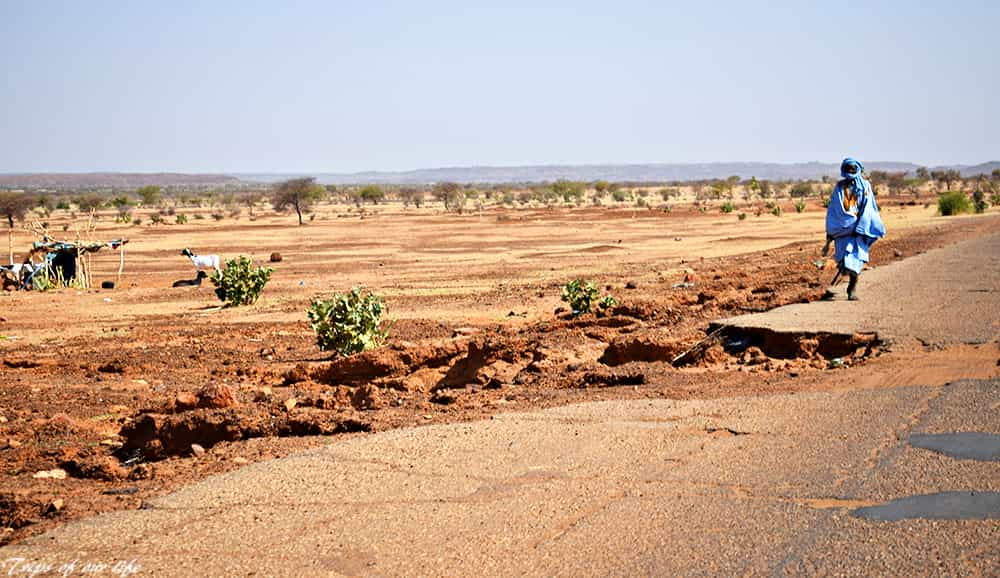
On my second day in the capital, and after Baba and I had finished our city tour, we passed by a local bus station to check out the timetable to the north part and buy a ticket for the next day. Right there, I decided to leave for the difficult southern part of the country, leaving the easier north for later.
The price for a one-way ticket was around 40€. Ι found it very expensive considering Mauritania is a poor country, but I justified the huge distance of 1,200km. to the city of Nema. Moreover, there was no alternative mode of transportation, except for the private car, which was out of my tight budget. So we arranged everything on the spot, with the help of the employee, and the plan was something like that:
I would travel by a minivan from Nouakchott to Nema, the last accessible town by a conventional vehicle, located in the southeast part of the country. The ride would take around 20 hours and there, I would board the 4×4 shared taxi for the local ride to Oualata, running every noon at 3pm. The employee of the bus-station made a seat reservation for the ride from Nema as well, and the one-way ticket would cost around €9. In Nema, the person in charge would pick me up from the terminal station to take me to the shared taxi stop, and I would arrive in Oualata the same afternoon.
I departed by a small old van, early in the next morning, and theoretically the next day I would arrive in Nema. The journey was extremely tiring, making countless stops in small, uninteresting villages. Thankfully, the van was almost empty and I was sitting alone in the first seat, right behind the driver. I was under the impression that we would ride straight to our final destination, but the one and only driver of our vehicle should probably get a rest, so we stopped at Kiffa town.
Arriving at the bus station, all the passengers laid down on some carpets, already placed on the ground of the parking area, along with goats and who knows what else was there in the dark. The driver, an amazing man, who was treating me like a princess, asked me if I would prefer to sleep in my own bedroom, while grabbing my hand, he led me to a motel, right next to the bus station.
The room was filthy; don’t even ask about the bathroom and the toilet! Considering that I would use it only for that night and paying €2.50, there was no reason not to prefer the room to the station ground with the cockroaches and the animal dirt. It was the best decision I made in the end, because it was my first and last time I slept on a bed, for the next 15 days of that trip! Before that, I went out for a short walk to buy some water and supplies for the next day.
The town appeared uninteresting and dull, but all the locals I met were very kind and friendly. I went back to the motel, in case I could rest a bit after the torturous journey, but I found a huge cockroach having fun in my room. Following a long battle with that beast, I finally killed it and managed to close my eyes for a few hours.
The next day, we left again at dawn. The journey was just as boring as the previous day, except for some interesting moments in some villages, where the locals had fun with me, as they had not met a tourist for years. Regarding some children, I was the first white person they had ever seen so far in their lives.
We finally arrived in Nema late in the afternoon, but I had already missed the next ride and had to spend the night there. I had no idea what I was going to do and I didn’t even have any connection to call my friend in the capital. Luckily, I met the local who would pick me up from the bus station to lead me to the shared taxi. He had already called Baba, since he could not find me during the day and offered to host me in his house with his family for that night.
That was actually, my first touch with the reality and everyday life of the very poor inhabitants of the country, which had nothing to do with the life in the capital.
Lunch time in a random village
The road of the sount
With my hosts in Nema
The initial impression of the town of Nema was scary!!
It was already dark, and I could see nothing but dust, cars, and human figures. There were no paved roads, nor streetlights. My host and I rode a taxi and arrived at a neighborhood of half-demolished one-story houses. Their own house was very poor: an empty front yard, shared with the house next door, a central room that served as a living room-kitchen-bedroom, a backyard that served as a bedroom-kitchen, and a storeroom. Right next to the storage room, there was a room with buckets, running as the bathroom, while the toilet was another roofless room, with a door and a hole in the center. There was no running water, no sewage system, however, all the houses had electricity, tv and satellite dish.
The first thing I wanted to do was to use the buckets! At that moment I cared about nothing but throwing some water on my filthy body even in this way. I couldn’t stand myself after those 2 days on the road, with so much dirt and dust on me. By the time I had put on my clean clothes, friends and relatives of the family came to meet the only tourist in the area. While sitting all together on the floor, we enjoyed our dinner a la Mauritanian way, having traditional couscous and tea. Communication was fun though; we tried using French, Arabic, the sign language, but in the end, we got lucky as their nephew was learning English at the time and he helped a lot.
The family that hosted me consisted of the couple and their 3 children. The lady, although she was very polite, she was very shy. She didn’t join for lunch and didn’t want me to take photos of her. We all slept together on metal beds in the inner yard, as locals do, while the small desert locusts, were jumping on my sheet all night long.
At dawn, we were woken up by the neighboring roosters and goats. The children were already up and getting ready for school, while the hostess was washing the last night’s dishes in the yard taking water from some cans. It was prayer time, so while I was waiting for my host Babiya to pray, I strolled around the courtyard. Later, the 3 of us sat down on the floor, to enjoy our breakfast. The standard Moorish breakfast is milk and bread, plain, with jam, butter or anything is available at home. Coffee is not that popular, while the traditional tea is drunk continuously during the day, right after meals.
Next thing we did, was a walk around the city center with Babiya and his nephew, so that I could get an idea of the local life and spend some time with the people before my departure. Nema is a poor town, built in the middle of nowhere, with dirt roads and single-floor houses. No particular architecture, nothing interesting, neither in the central market, nor around. The only interest to the locals was probably myself, as they welcomed and asked me out of curiosity, what I was doing in that isolated town. The prices in the market were generally very low, except for fruits and vegetables. They were actually very expensive, since Mauritania produces nothing because of the desert, and food is imported from Morocco and Senegal. I felt obliged to give a small gift to the family that hosted me, so I bought fruits and cigarettes.
The time for me to leave had come, and I said good-bye to my kind hosts. Babiya and I had already arranged to stay at his sister’s house in Oualata, so he joined me there. We boarded the shared taxi along with 2 other travelers and finally headed off to my final destination.
The mosque of Nema
The cemetery
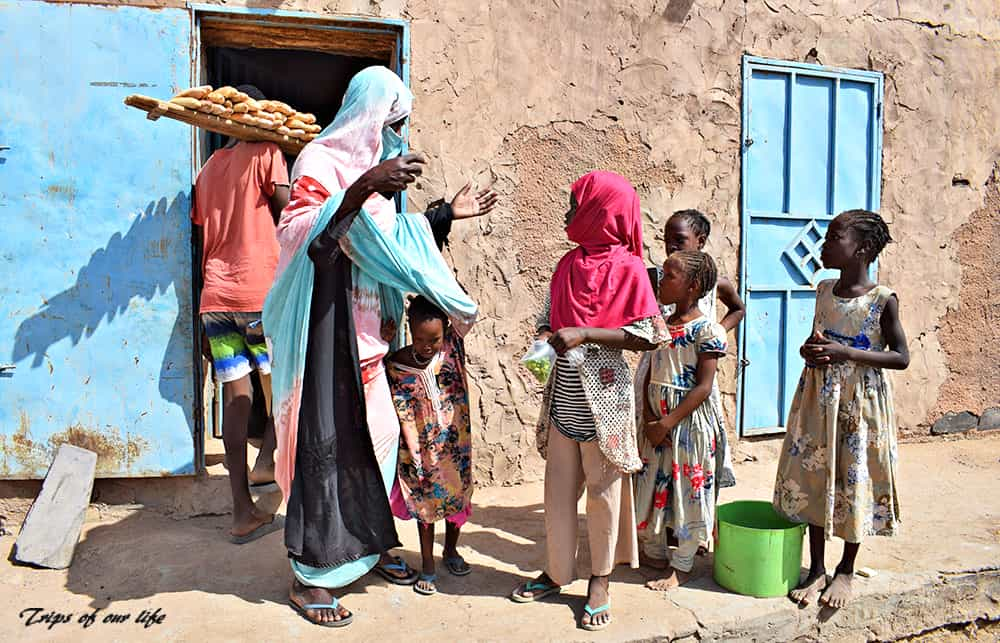
The ride to Oualata lasted 3 hours, having some necessary stops to change a flat tire, something very common in Africa, and to pray in the middle of nowhere. The landscape was constantly changing, from sand dunes to bushes and greenery, a scenery you only find in the southern part of the country. Southern Mauritania, moreover, belongs to the northern part of sub-Saharan Africa, the so-called Sahel, a strip of steppe with sparse and low vegetation, which separates the Sahara desert from the African savanna. Leaving behind an amazing sunset, one of those African ones I’m dying for, our trip ended around 18.00hrs, in the last inhabited town of south-eastern Mauritania.
Unlike Nema, Oualata is a jewel in the desert and to me, the most beautiful town in the country. It’s the third oldest city of Mauritania, and an important caravan station, right after Timbuktu in neighboring Mali. Back in time, the camelmen, while transferring their products from one side of Africa to the other, used to stop at these ancient towns, to rest and exchange various goods, mainly salt from the dried salt-lakes of the Sahara.
Oualata is now divided into 2 towns: the ancient one, with the famous frescoes on the walls of the old mud houses, which is built amphitheatrically on top of a hill, and the new one, with the normal houses, built down in the valley. The taxi stopped at the end of the road in the new town, and we kept on walking on dirt roads with huge stones. The house I would be staying in, was located in the old town and it was one of those cute, traditional mud houses, with painted walls and wooden doors. Unfortunately, it has been already dark, and the town was completely deserted. There was no point in taking a walk, since there was no electricity or light on the streets. So, I went back down to the new town to buy bottled water and some sweets for the children and returned at home with the family.
Although it was late, the heat was unbearable in the heart of the Mauritanian desert. I had no internet connection there, but since I checked the temperature earlier on the way, it should be around 45C during the day and 40C at night. Fortunately, the climate is generally dry in the desert, with low to zero humidity, so the heat gets used to quickly. I spent my time with the locals and the children of the family, and slept once again on a metal bed, in the inner yard of a random house, under the starry sky of Africa.
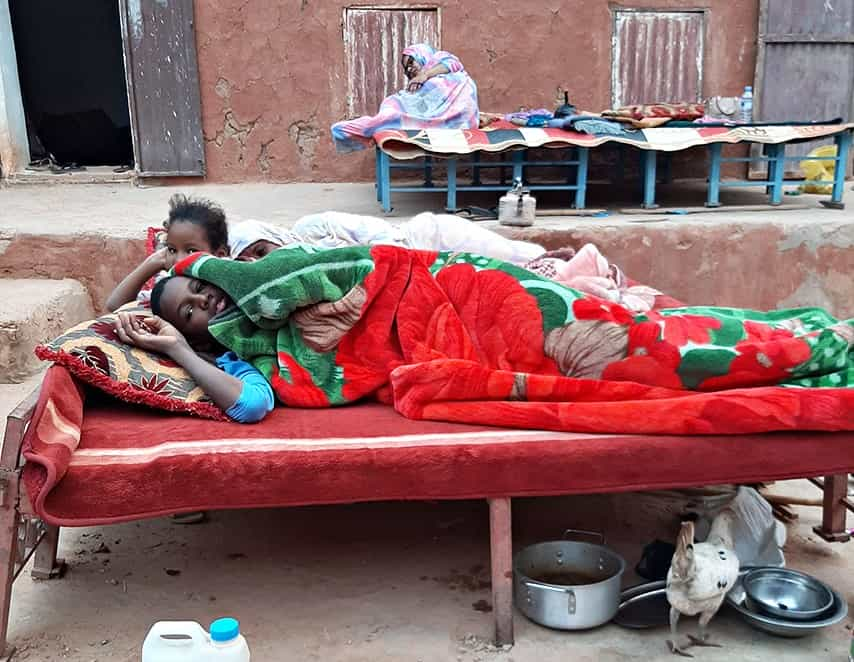
Τhe voice of Imam from the main mosque and the hostess prayer woke me up at 5 in the morning. I fell asleep in no time, but I woke up again a bit later, as the chickens were running like crazy in the inner yard. My first sight of that day was the puzzled faces of the children sleeping right next to me. Apparently, they were feeling very weird watching a foreigner, especially a blonde woman who was sleeping in their yard for the first time in their lives!
This house had nothing to do with the previous one in Nema. Apart from being much more beautiful due to the traditional architecture, it was bigger, both the interior, with 2 large rooms (bedrooms-living rooms), and the inner yard. Additionally, there was also a smaller yard at the back side, with 2 extra rooms: a small one, used as a toilet, with a small hole in the corner and a bucket of water for flushing, and the next one used as a bathroom (which I didn’t use this time). There was no sewage system, and the dirty water was running inside the back yard. In that place there was also the only tap of the house, where countless cockroaches gathered every time the water was running. Well, in the end, I got used to cockroaches, as a part of the everyday life in the country.
Thankfully, the stunning beauty of the house and the overall unique experience made me forget about everything else…as well as the naughty neighbor’s goats which made a mess that day, coming uninvited into our yard to steal the food from our dishes!
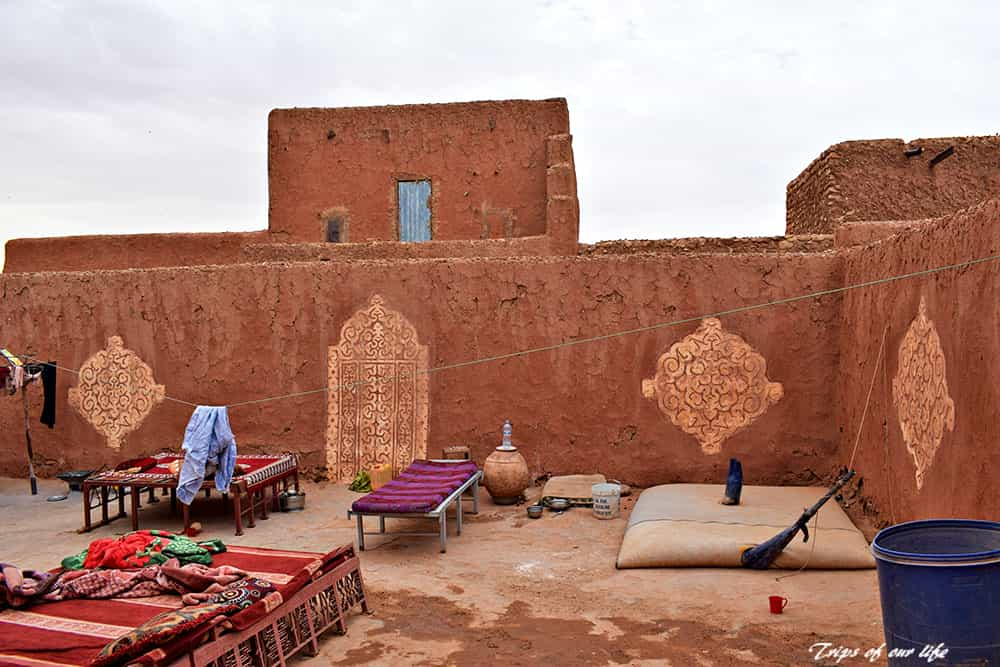
I had a full day ahead to explore this amazing part of the country. What could Oualata offer me?
- An old town gem, with colorful mud houses, handmade murals on the walls of the inner yards and facades, and ancient wooden doors
- The old libraries with ancient manuscripts, similar to the one’s of Chinguetti and neighboring Timbuktu – I visited two of them, a personal collection and the official library of the old town
- The limitless view from the top of the hill
- The only lake in the area outside the new city, where animals gather to drink water and cool off from the high desert temperatures
Babiya and I started our city tour early in the morning, headed to the top of the hill where the old town is built, having unlimited views to the whole area.
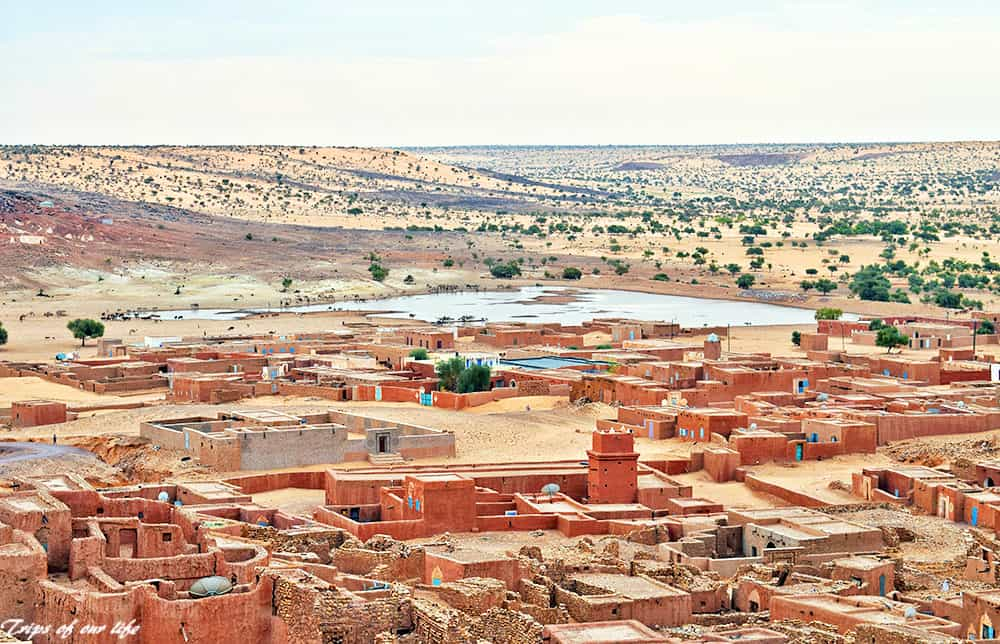
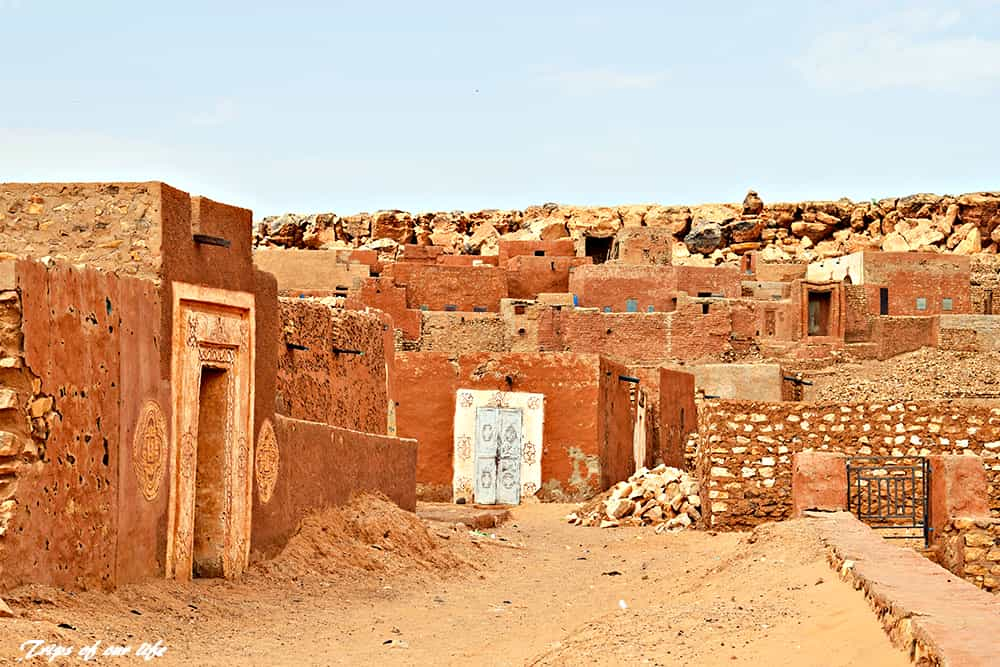
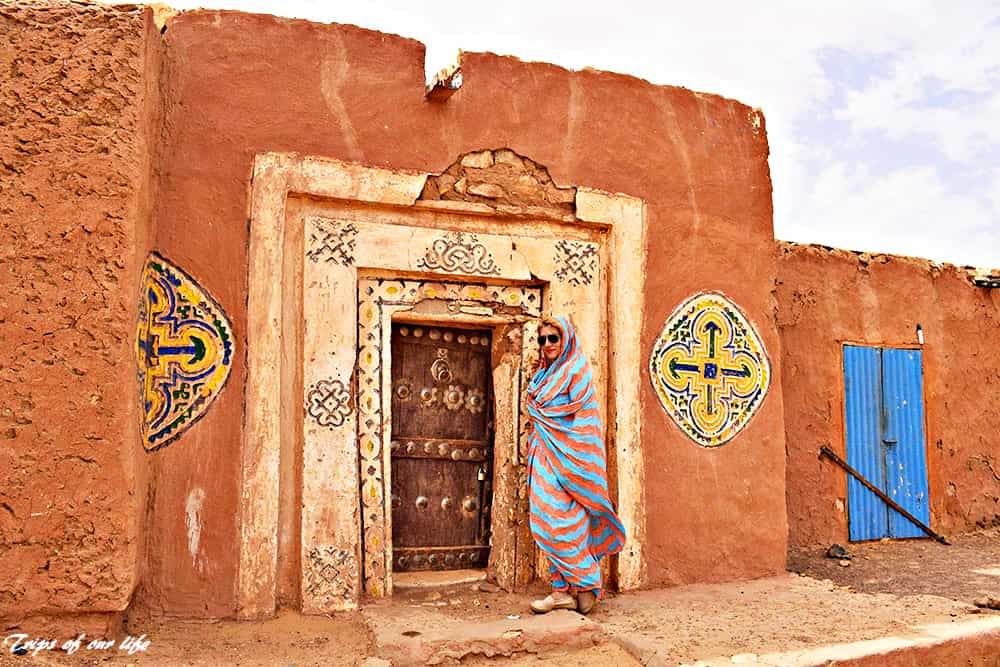
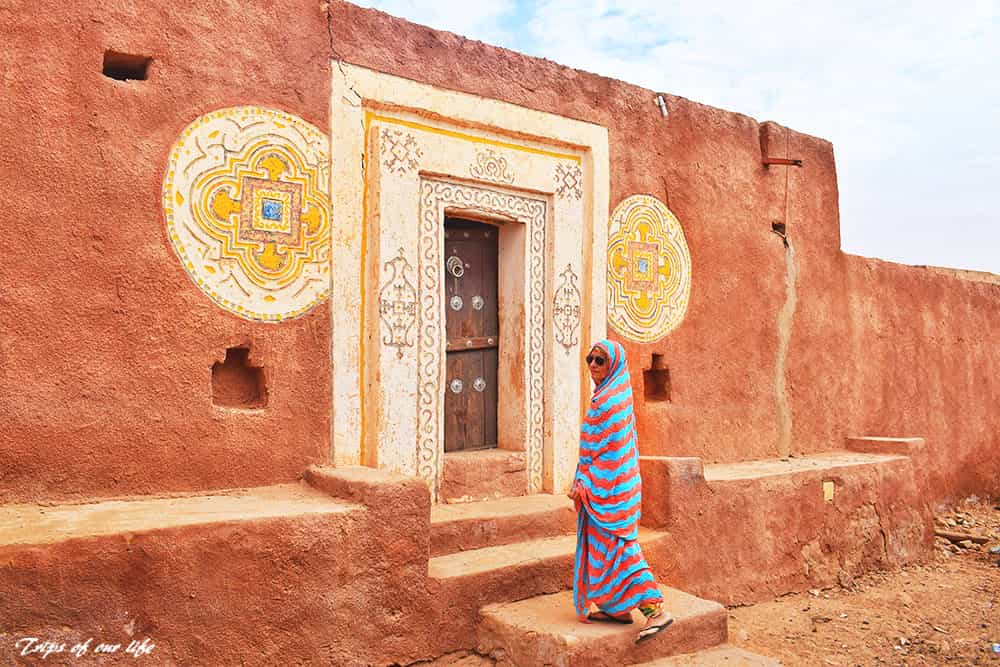
Fully dressed with the traditional cloth local women use to protect their body from the strong sunlight and the desert sun
On our way down, we walked through the old town, crossing paths fully covered by the Sahara sand, and looking at the wonderful mud houses with the colorful walls.
Visiting the local houses was the best part of this city tour, while everyone welcomed me with a huge smile. The walls of the houses in the inner yards were also decorated in the same style as the exterior, hand-painted by the local women.
In each inner yard I entered, I faced the same pattern with the metal beds and mattresses. I figured that the locals didn’t use the interior of the houses at all, except for extreme weather conditions, such as low temperatures and sandstorms.
And why shouldn’t they enjoy their sleep outside having a sky roof full of stars?
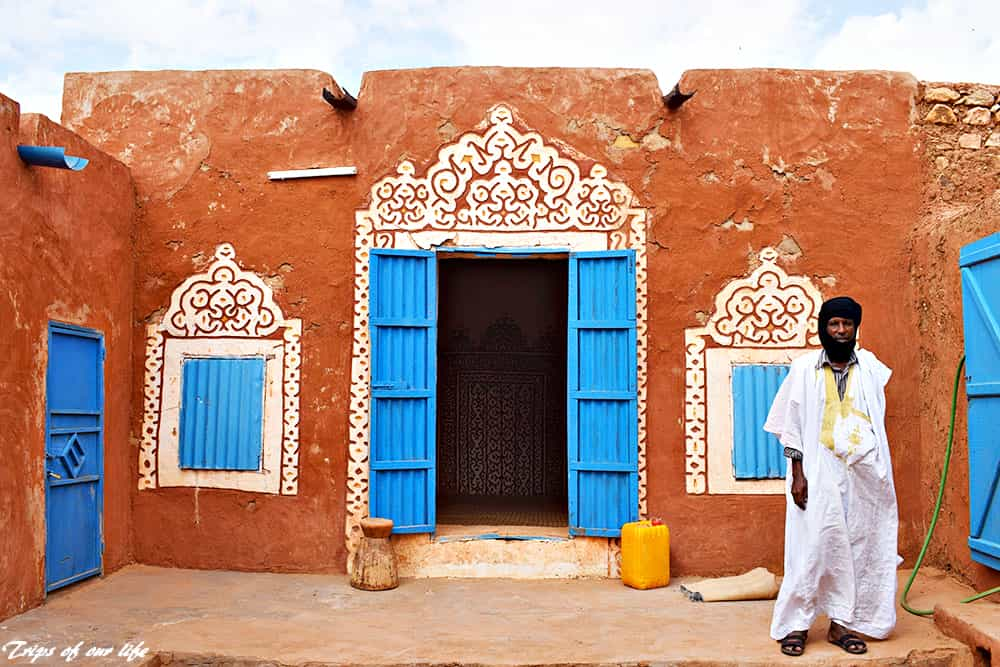
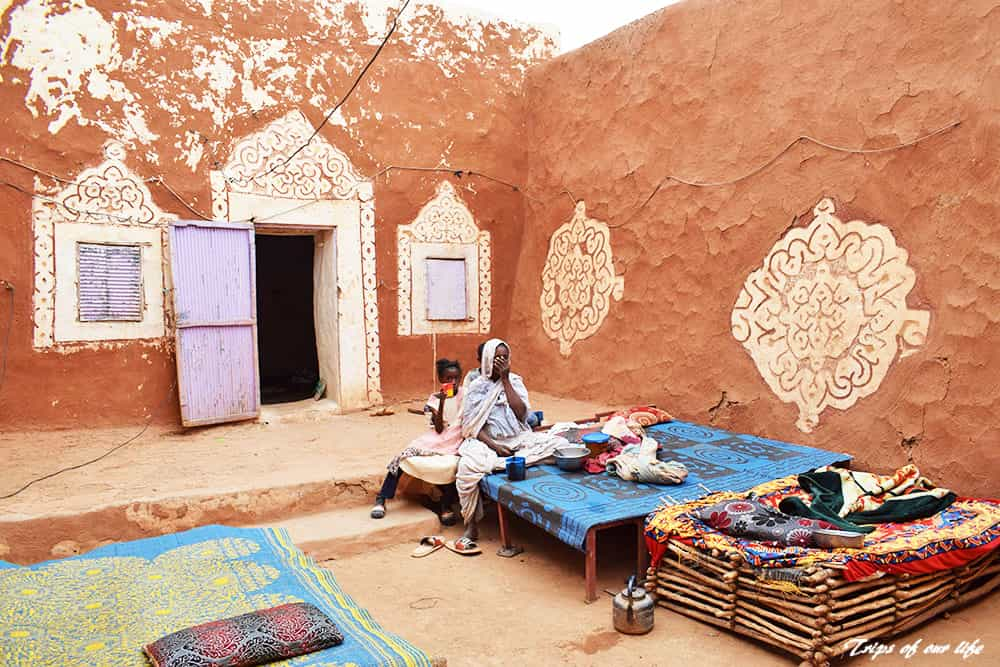
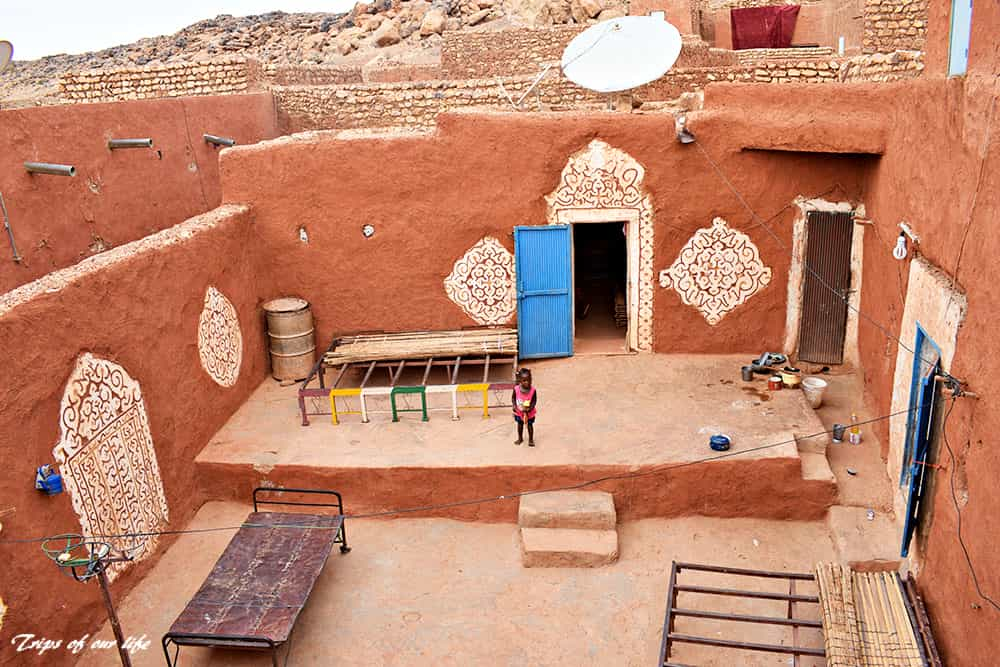
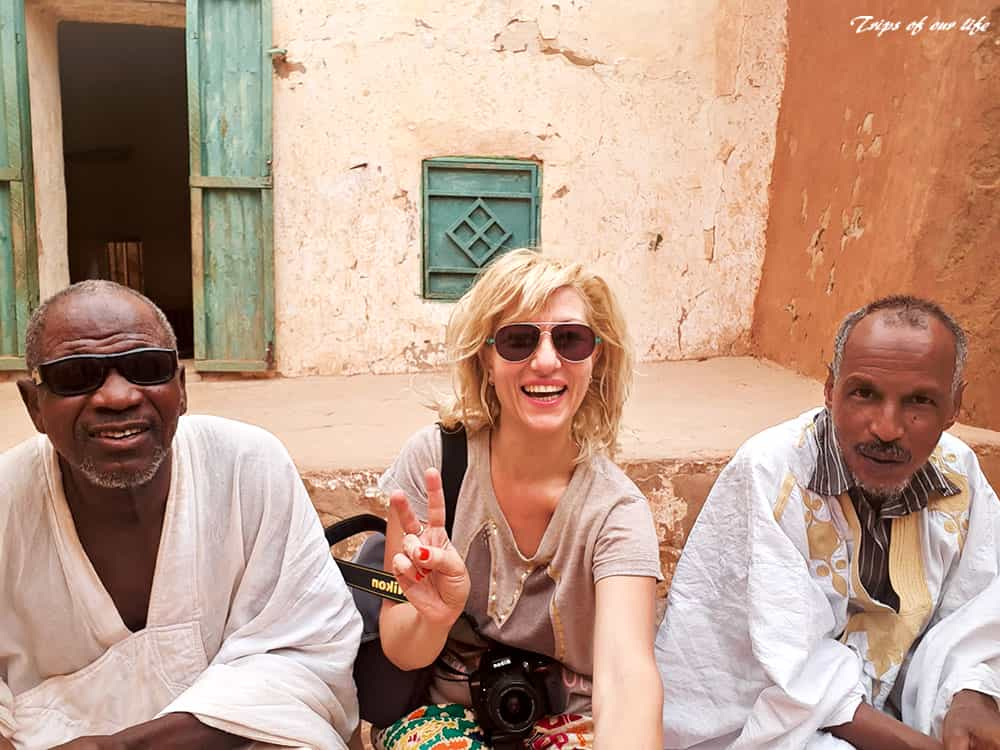
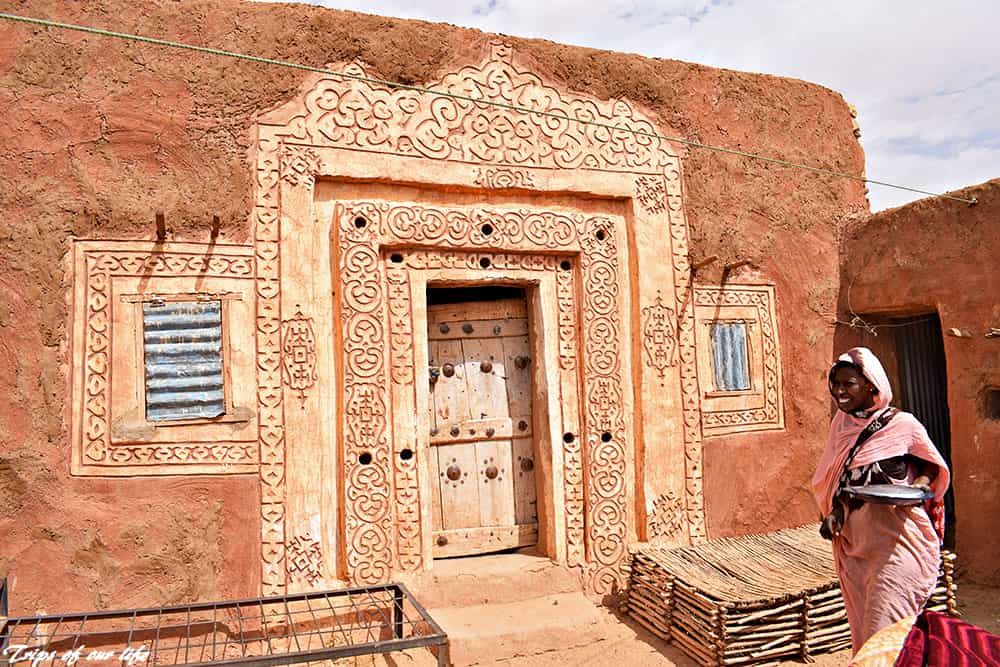
The old libraries
The old libraries with the ancient manuscripts of Oualata still remain completely unknown to travelers, unlike the famous ones of Chinguetti, the most ancient city of the country, which I traveled to later, as well. In Oualata, I had the chance to visit two of them, the official one, housed in a public building and can be visited by appointment only, and a private one in a local house.
These manuscripts, containing texts of Islam, poetry, astronomy and other sciences, are the ancient treasures, not only of the country, but mainly of the families that have been part of their heritage for over 200 years. Their covers were made from camel or goat skin and need special treatment and maintenance. Unfortunately, due to the erosion and the desert dust, they are in danger of being completely destroyed, as their storage conditions are far from ideal.
In the first library I visited, which was literally covered with the desert sand, the manuscripts were simply stacked in closets, or placed in drawers, without any protection from the extreme desert environment.
In the local house with the private collection, the manuscripts were also left to their fate. The owner had placed some of them in small cupboards inside the wall of his house, but most of them were stacked in a storage room outside in the yard. Fortunately, this kind man was learning English, so we had a long chat about his wonderful town, which has been forgotten by everyone.
Next stop, the small lake, the lifesaver of the animals.
A few steps outside the new town, a small pond was offering help to the animals of the area. Donkeys, goats and camels had come here to cool off from the unbearable 45C, giving life to that completely desolate part of the town. I didn’t even ask about the presence of the water in such an arid place, I was just enjoying the totally impressive landscape of the Sahara desert.
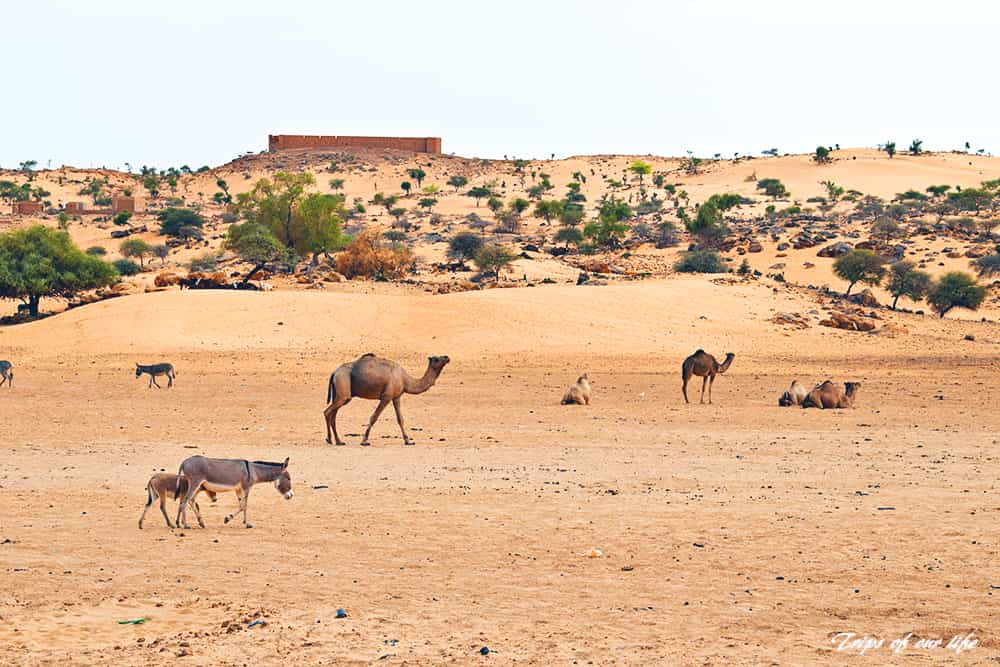
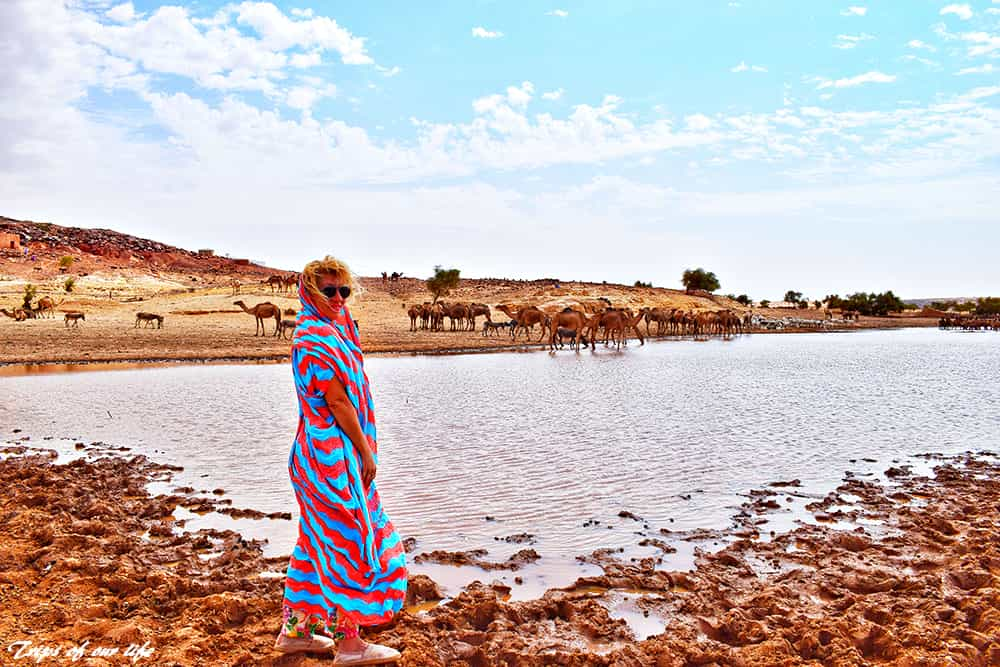
Today’s lunch was rice with camel meat, a very popular local Mauritanian dish. I tried camel for the first time in my life, but unfortunately not the last one. Although I didn’t like it at all, I had to eat it often during my trip.
What I really enjoyed eating in Oualata was the chicken with potatoes, onions and local pies. The baguette was never missing from the table, well, I mean the floor, since we were always eating with our hands from a shared plate, sitting on the floor. Either way in Mauritania, there are no tables, no chairs, no cutlery, no napkins, noting like in the western world.
The rest of the day was well spent walking around the neighborhood of the old town and playing with the kids at home. There was nothing else to see or visit, and the interaction with the locals in their premises was a unique experience in itself, anyway.
Next morning, we woke up at dawn to catch the only shared taxi ride from Oualata to Nema, and then, the bus to the capital.
I said goodbye to the most authentic town of the country, which took me back in time for a while, and boarded on the truck of the vehicle with two more Mauritanians and a tethered camel, in order to enjoy the ride with the first light of day.
Unfortunately, the camel got angry (I couldn’t blame it), biting everything around, that was, me! So I was forced to move in the car, without being able to enjoy the sunrise as I had dreamed of.
However, the journey to the capital turned into a nightmare!
I was supposed to have left Nema relatively early, and having the necessary stops and an overnight in a decadent motel again in the middle of nowhere (or maybe the same “luxury” one), I would arrive early in the next morning in the capital Nouakchott. There, I would go to my friend Baba ‘s house for a while, pack the rest of my stuff I had left, and continue my journey to the north of Mauritania the same day.
Unfortunately, we made 3 emergency stops, literally in the middle of nowhere: once, due to an electrical problem of the bus and two more due to flat tires. I arrived late in the evening of the next day at my friend’s house, and had to continue my trip the next morning, wasting my precious travel time once more…
Τ I A – This is Africa!

